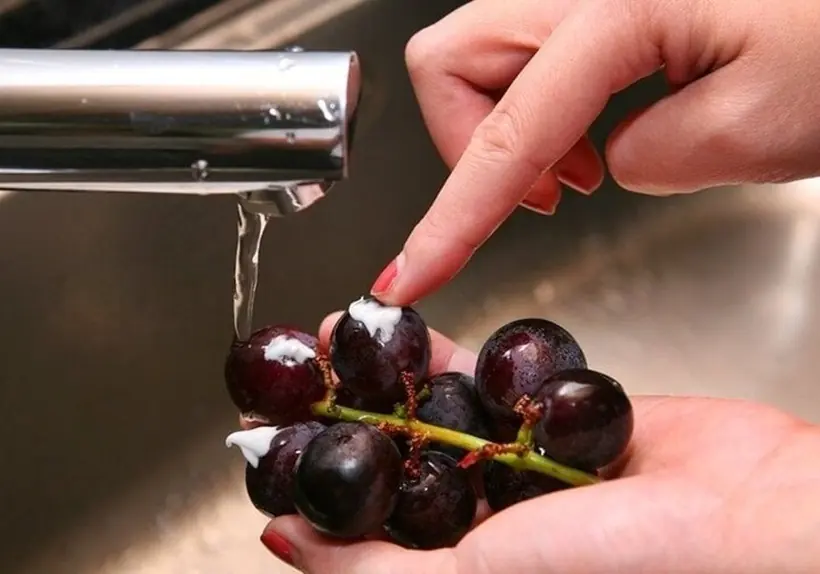
Why You Shouldn’t Pour Hot Water into the Kitchen Sink

Many people believe that pouring hot water down the kitchen sink helps clean away grease, unclog drains, and eliminate unpleasant odors. While this might seem logical, it can actually cause more harm than good. In fact, regularly pouring boiling or near-boiling water into your sink can damage your plumbing system over time — leading to costly repairs.
The Hidden Dangers of Pouring Hot Water into the Sink
1. Hot Water Can Age and Damage Drain Pipes
Most kitchen drainpipes are made of plastic materials such as PVC (polyvinyl chloride) or PPR. Although some types are designed to withstand mild heat, constant exposure to very hot water can accelerate the aging process of these pipes.
When exposed to temperatures above their tolerance level, the inner surface of the pipe may soften, warp, or even start to leak. This not only shortens the lifespan of the pipes but also increases the risk of expensive plumbing replacements in the future.
Even high-quality drain systems can deteriorate faster if they’re frequently subjected to sudden temperature changes between hot and cold water — a common scenario in household sinks.
2. Pipes May Deform, Crack, or Burst
If your plumbing system uses PVC pipes, you should be extra cautious. Most PVC pipes are only heat-resistant up to around 60°C (140°F). Meanwhile, boiling water, leftover soup, or vegetable blanching water can reach 90–100°C (194–212°F).
Pouring such hot water directly into the sink can cause the pipes to soften and lose shape, especially at bends and joints. Over time, repeated exposure to high temperatures can lead to cracking or bursting, allowing water to leak into cabinets, damage your kitchen furniture, or create hidden mold problems.
A Better Way to Remove Grease and Prevent Clogs
Instead of relying on boiling water to flush out grease or food residue, try these safer and more effective methods:
1. Never Pour Cooking Oil or Grease Down the Drain
Hot oil and fat are liquid when warm, but they solidify as they cool, forming stubborn blockages inside pipes. These greasy layers trap food particles and debris, eventually creating severe clogs and unpleasant odors.
Instead, allow grease to cool in a separate container or wipe oily pans with paper towels before washing them. You can then dispose of the used oil properly or recycle it according to local waste guidelines.
2. Use Enzyme-Based or Biological Drain Cleaners
To safely break down grease and residue, consider using enzyme-based drain cleaners. These products contain natural enzymes and bacteria that digest organic matter — such as fat, food waste, and soap scum — without damaging your pipes.
Unlike harsh chemical cleaners, enzyme-based products are eco-friendly and non-corrosive. They can flow through the entire length of the drainage system, cleaning efficiently and even eliminating odor-causing bacteria.
You can use these cleaners not just in the kitchen, but also in bathrooms, showers, and toilets. They help maintain a clean and odor-free plumbing system while extending the life of your pipes.
💡 Tip: Always read and follow the manufacturer’s instructions carefully. Choose drain-cleaning products with clear ingredients and reliable origins to ensure both safety and effectiveness.
3. Try a Homemade Cleaning Solution (Optional)
If you prefer a natural DIY option, you can mix baking soda and vinegar to dissolve mild blockages.
-
Pour half a cup of baking soda into the drain.
-
Add one cup of white vinegar.
-
Wait for 15–20 minutes, then rinse with warm (not boiling) water.
This simple reaction helps break down light grease buildup and keeps your drain smelling fresh.
The Bottom Line
While hot water seems like a quick fix for greasy sinks, it can quietly damage your plumbing system over time. The short-term cleanliness isn’t worth the long-term repair costs.
To keep your kitchen drain clean and efficient:
-
Avoid dumping hot water or oil directly into it.
-
Use enzyme-based or eco-friendly cleaners regularly.
-
Rinse with warm, not boiling, water after washing greasy dishes.
By following these simple steps, you’ll protect your pipes, prevent clogs, and maintain a cleaner, more hygienic kitchen — without any hidden plumbing headaches.
News in the same category

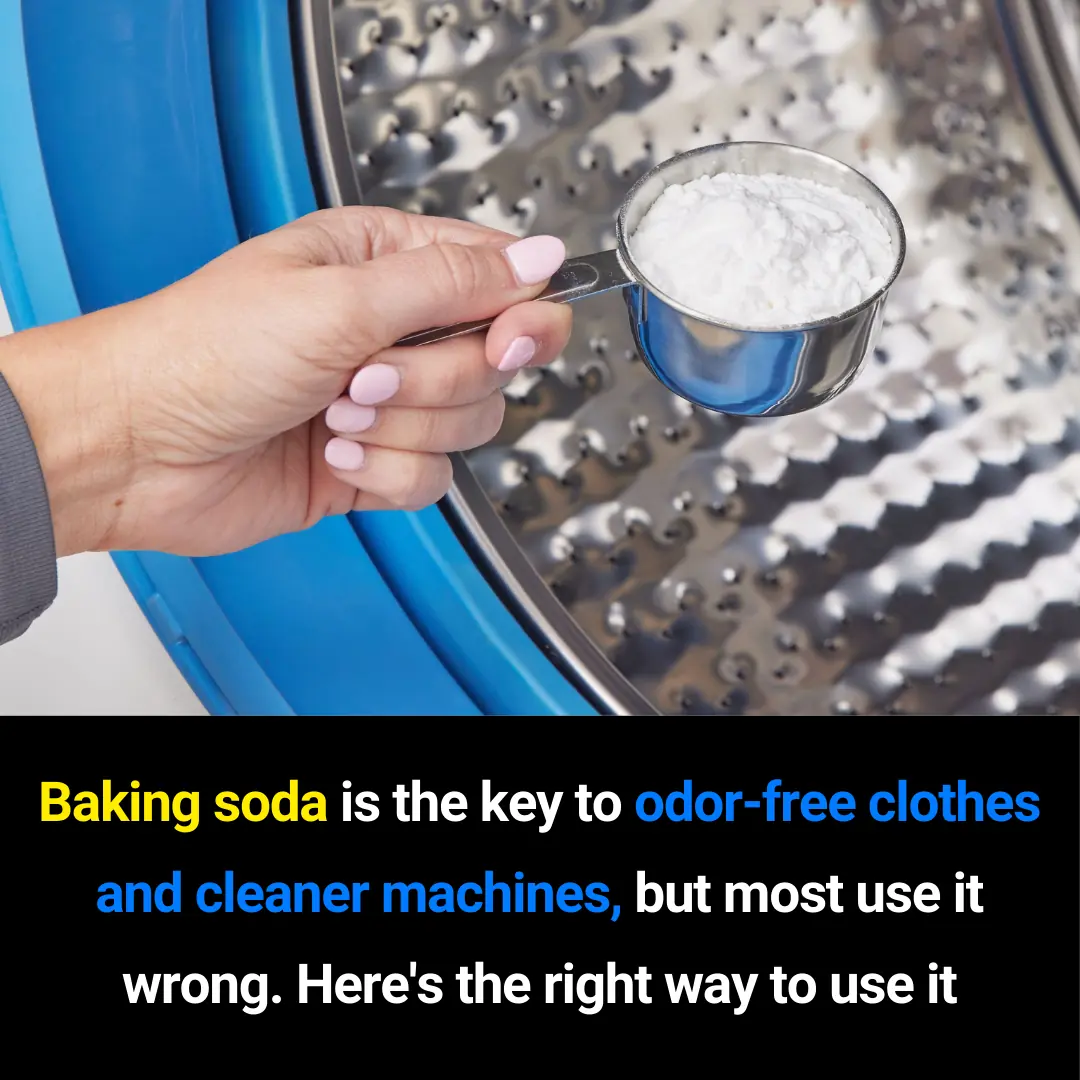
How to Use Baking Soda Correctly in Laundry – Simple Tips for Odor Removal, Cleaning, and Machine Care
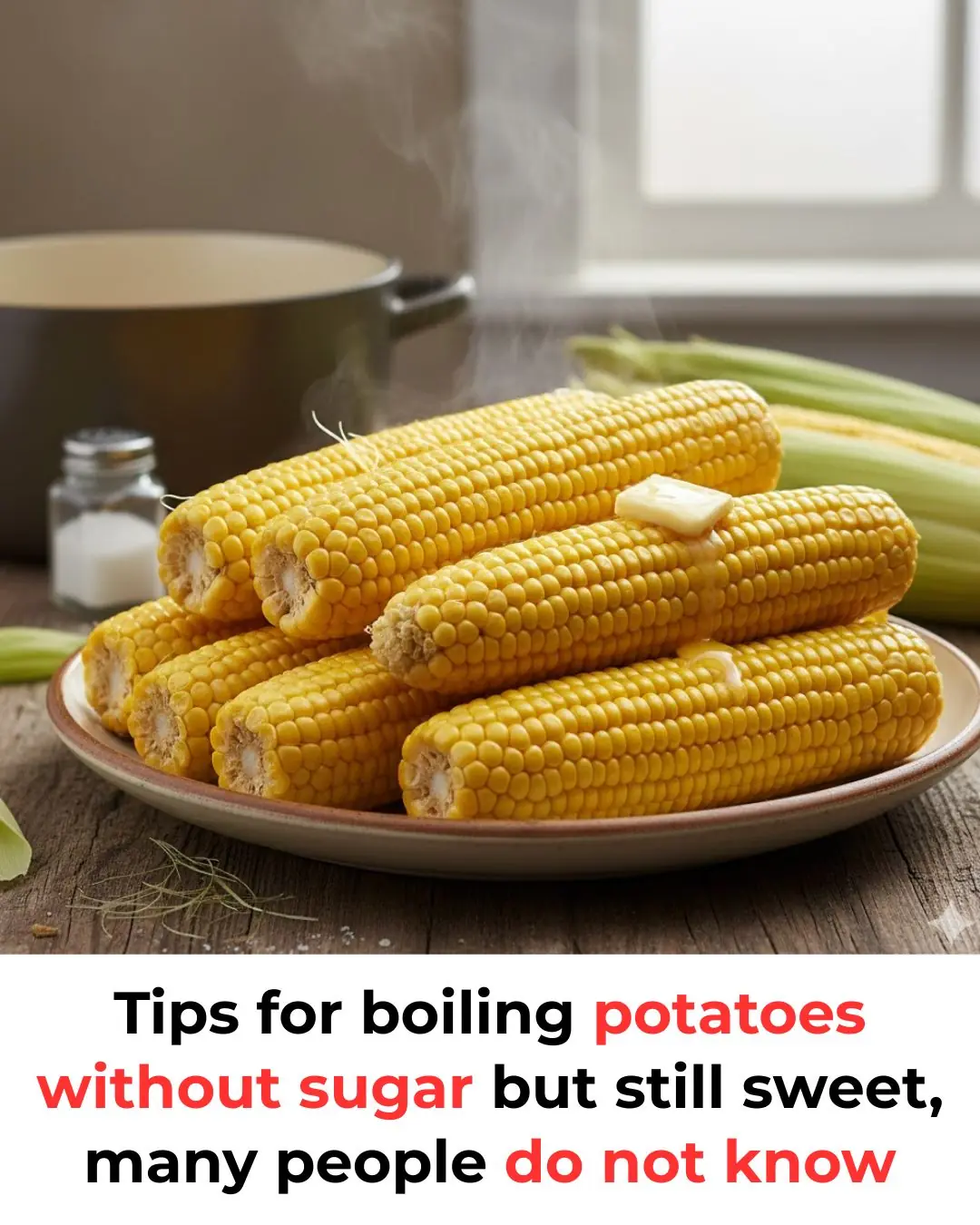
Tips for boiling potatoes without sugar but still sweet, many people do not know
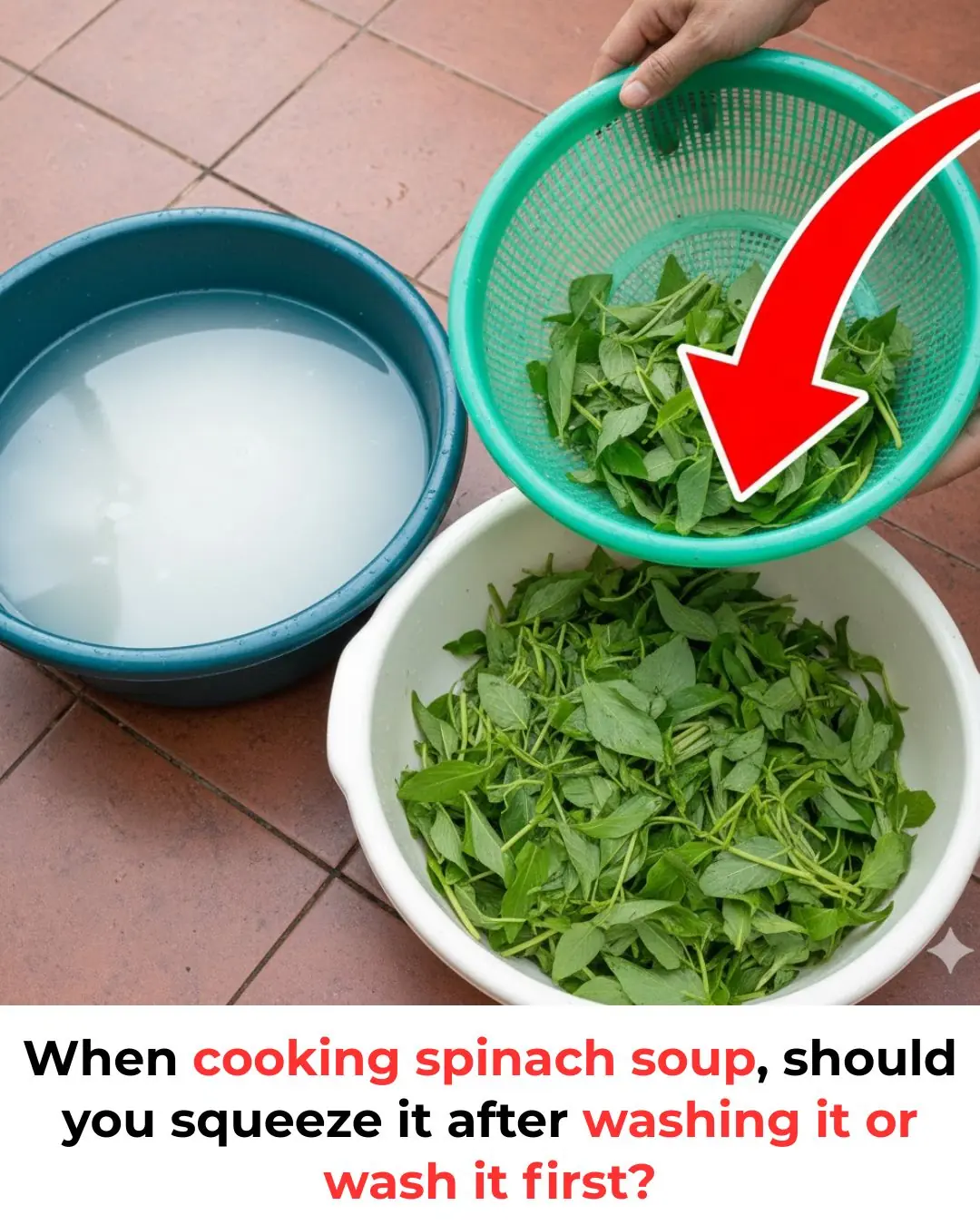
When cooking spinach soup, should you squeeze it after washing it or wash it first?

Boiling chicken with boiling water or cold water: Seems simple but 9 out of 10 households do it wrong, causing the chicken skin to crack.
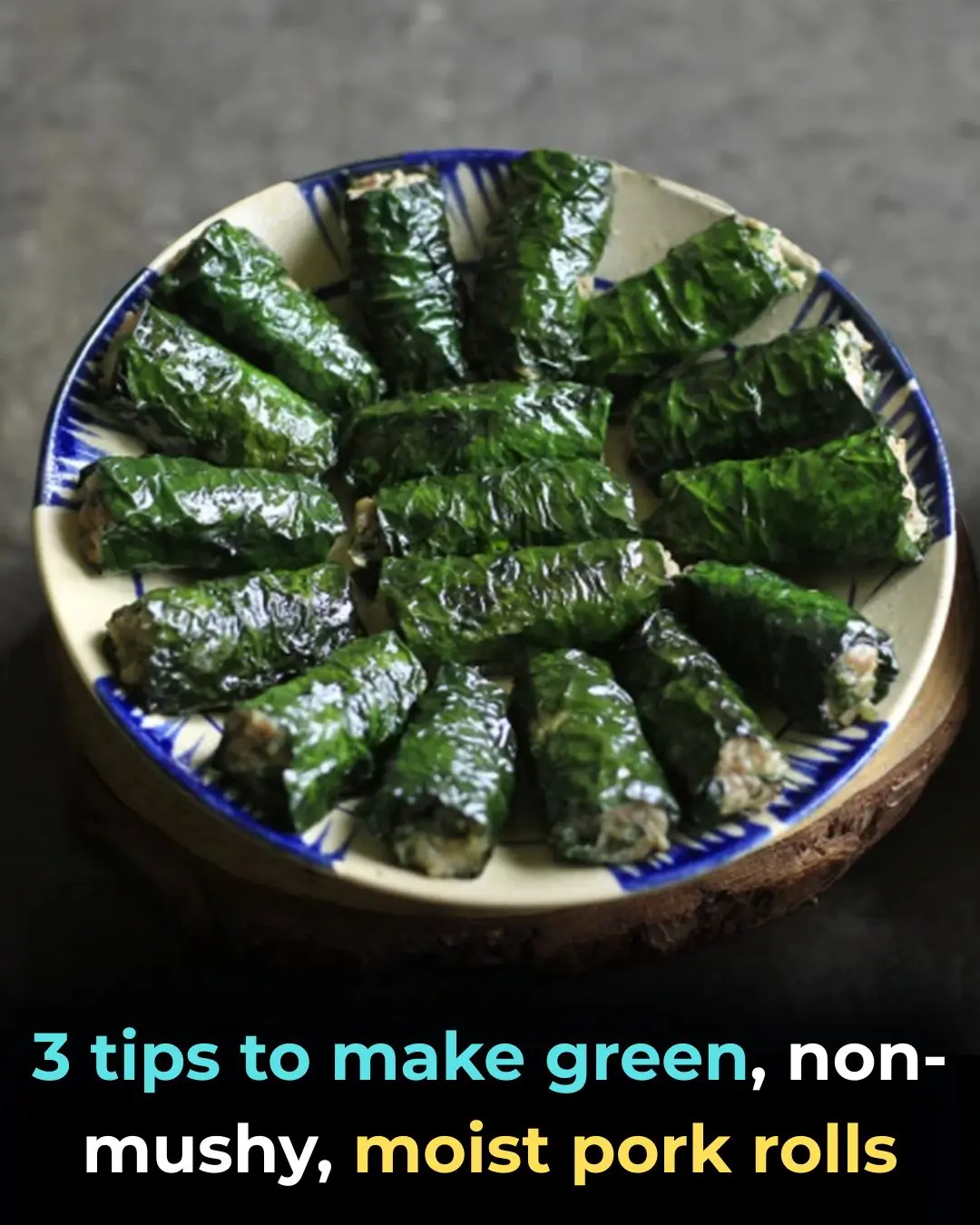
3 tips to make green, non-mushy, moist pork rolls
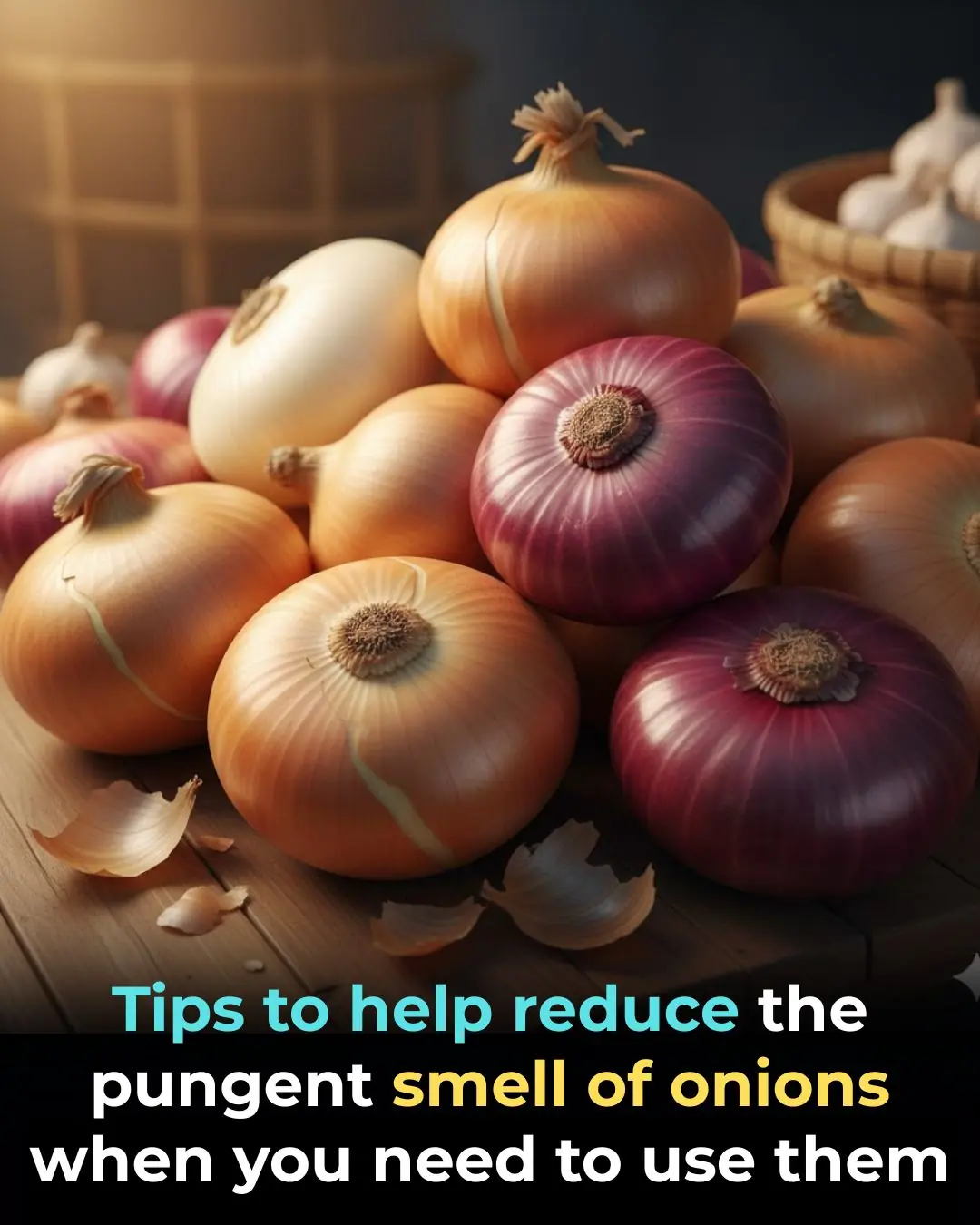
Tips to help reduce the pungent smell of onions when you need to use them
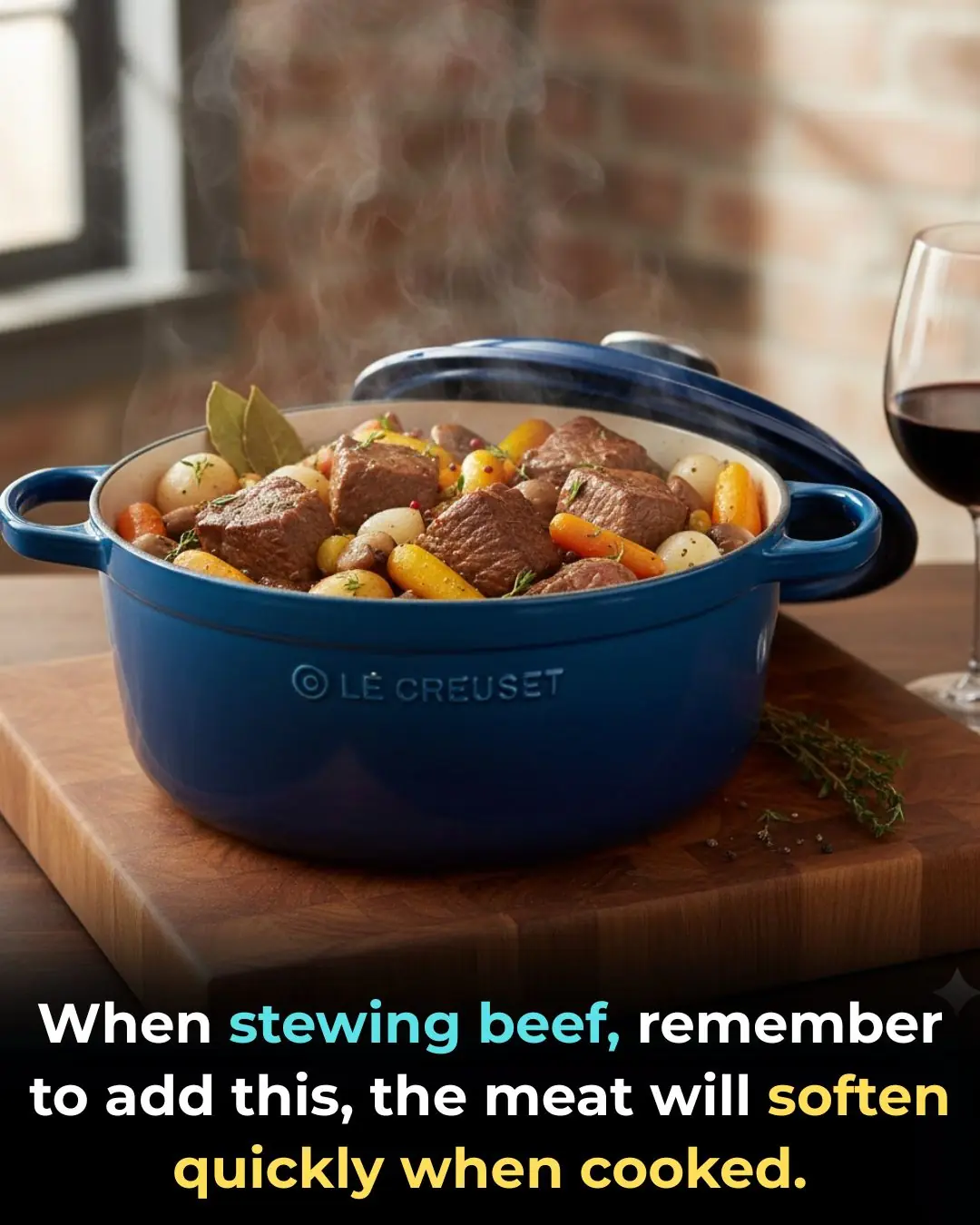
When stewing beef, remember to add this, the meat will soften quickly when cooked.
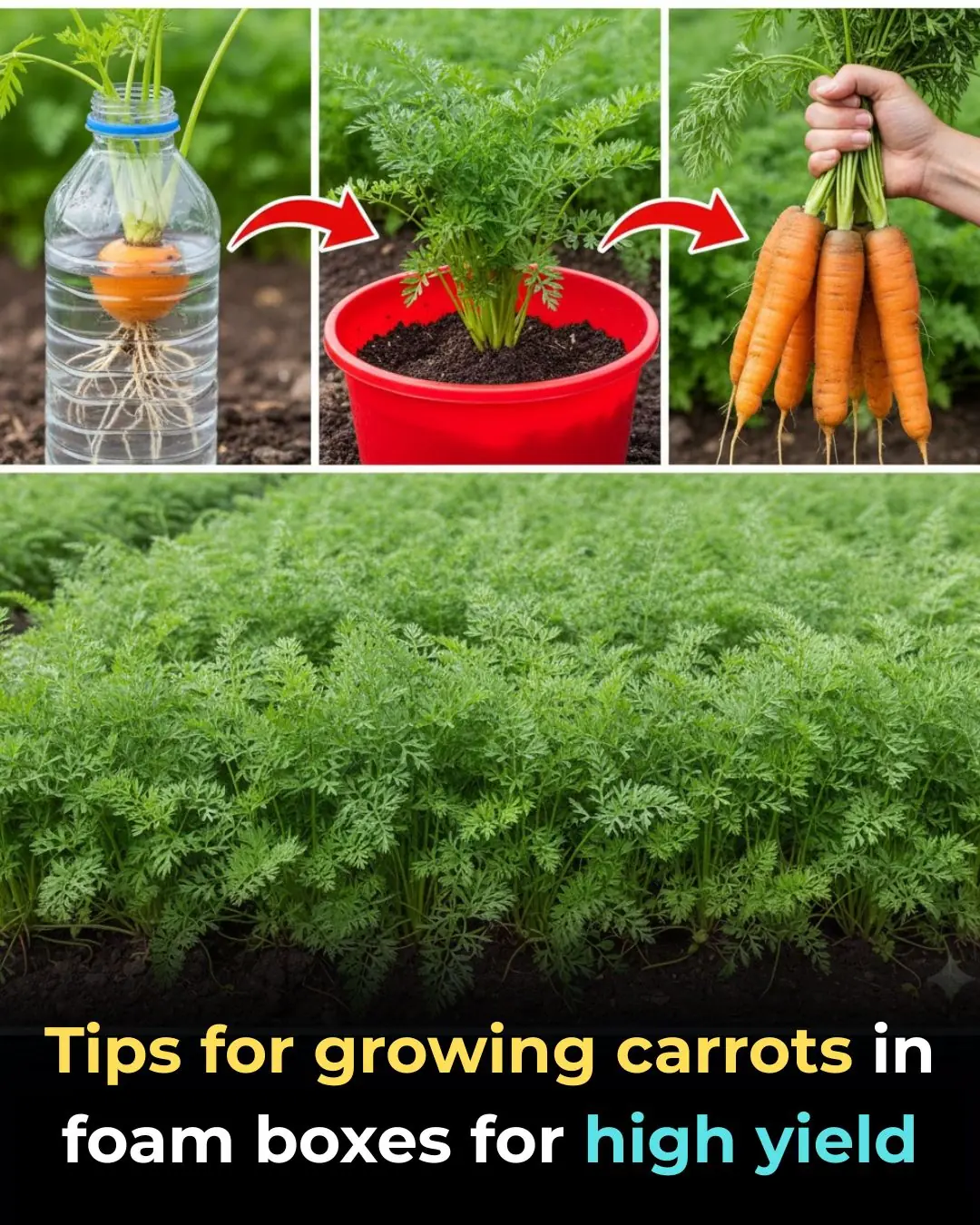
Tips for growing carrots in foam boxes for high yield
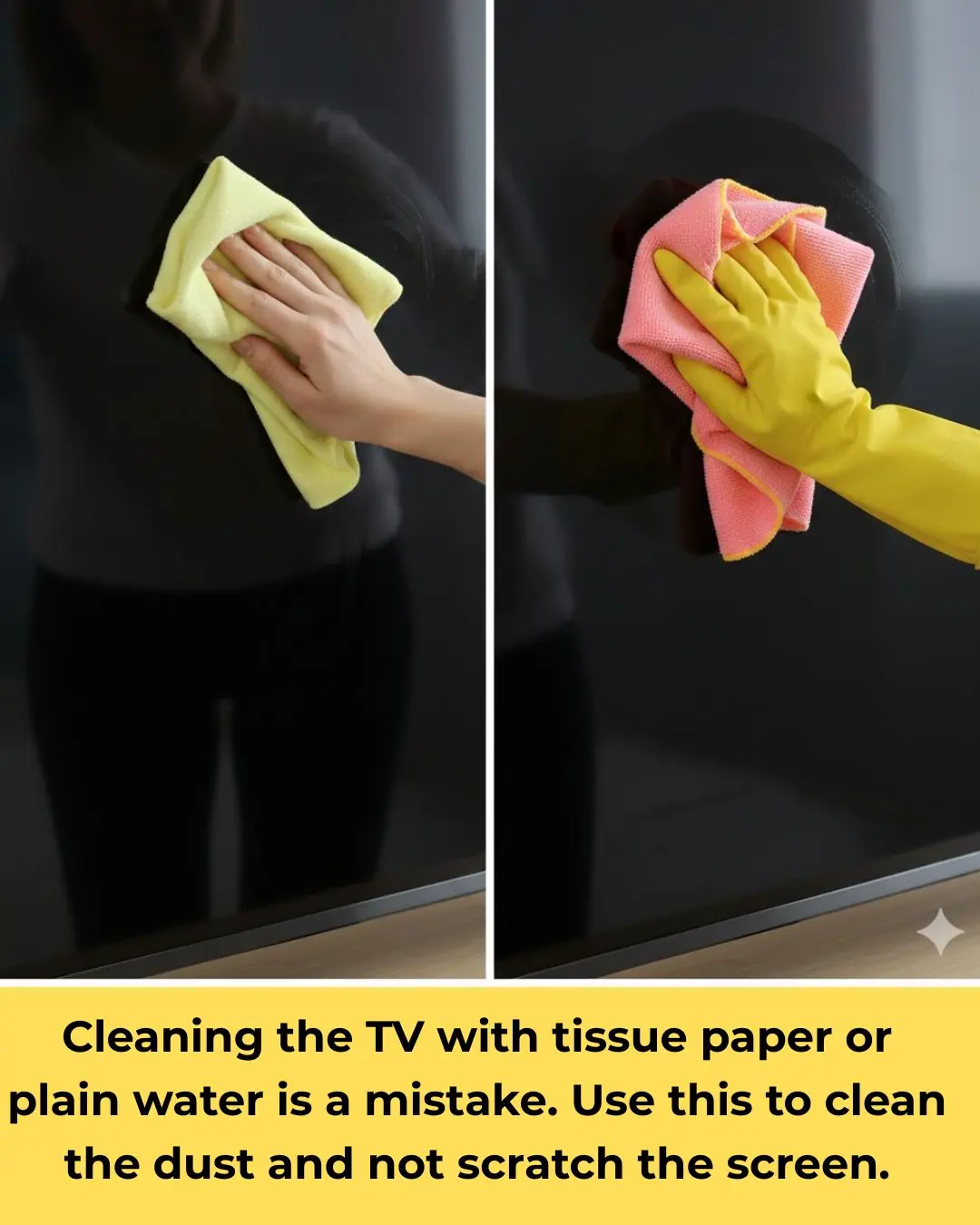
Cleaning the TV with tissue paper or plain water is a mistake. Use this to clean the dust and not scratch the screen.
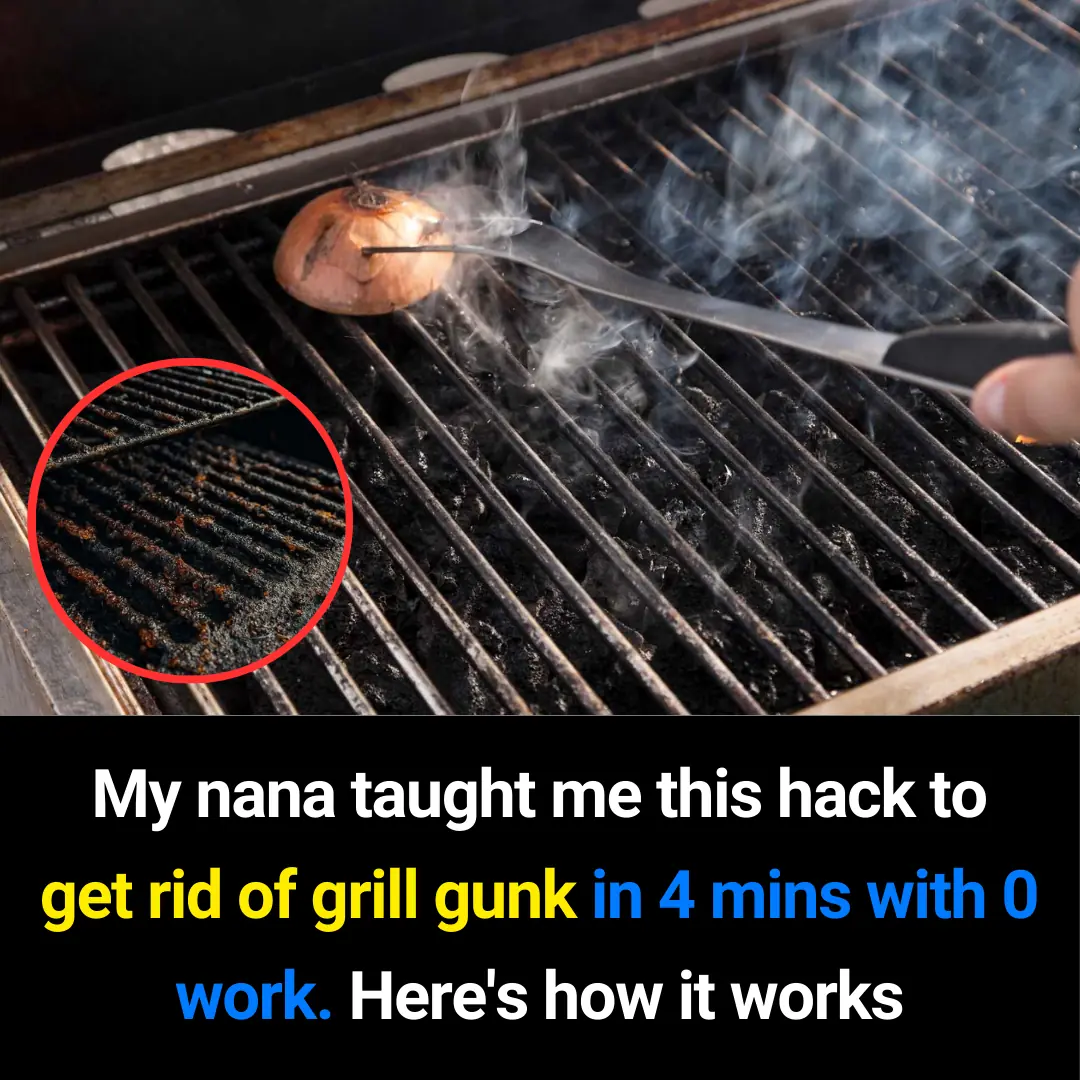
A 4-Minute, Zero-Effort Hack to Clean Grill Gunk – The Simple Trick My Nana Taught Me
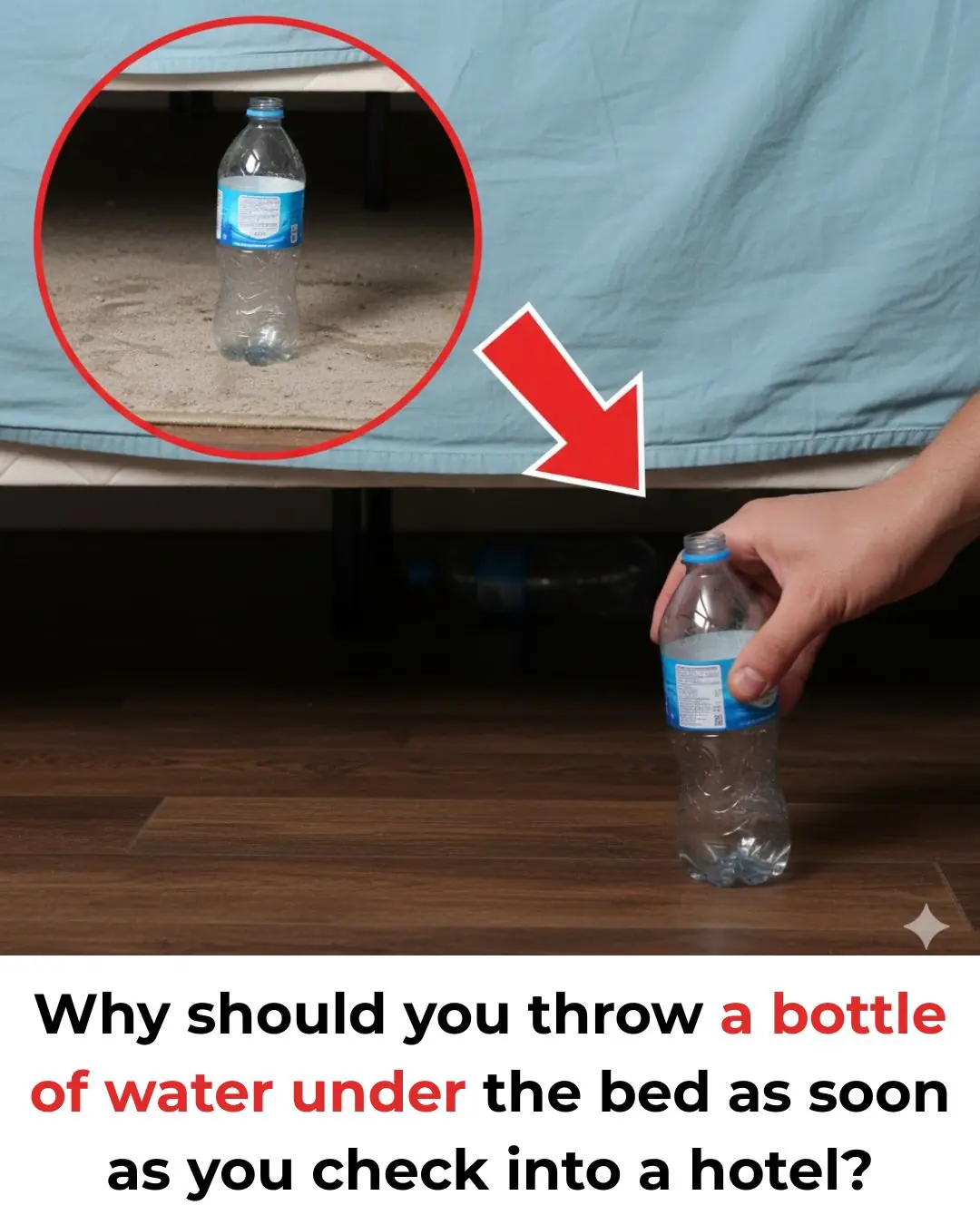
The Under-Bed Test: A Quick Trick to Ensure Your Hotel Room Is Safe and Clean
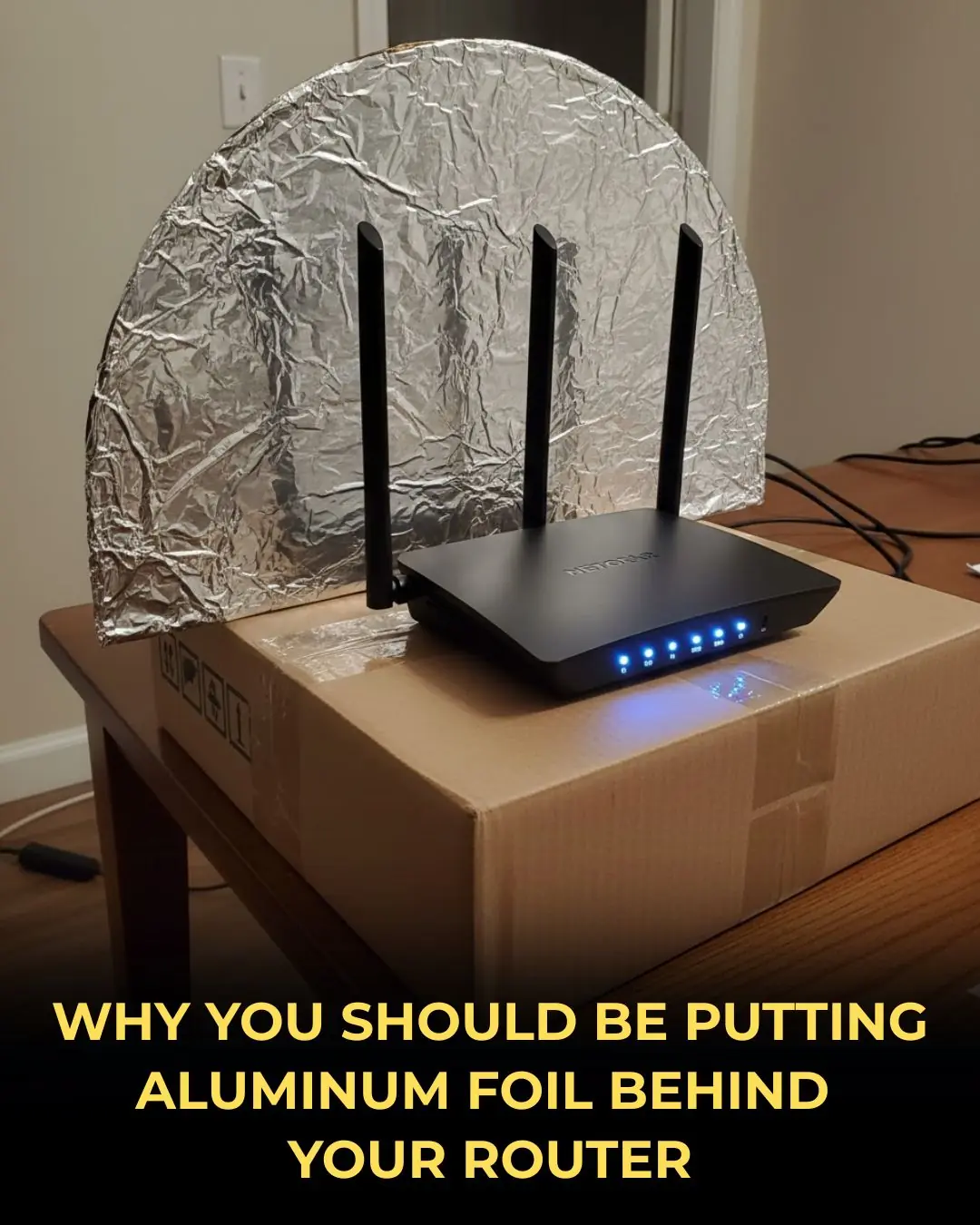
Boost Your Wi-Fi Speed with This Simple Aluminum Foil Trick
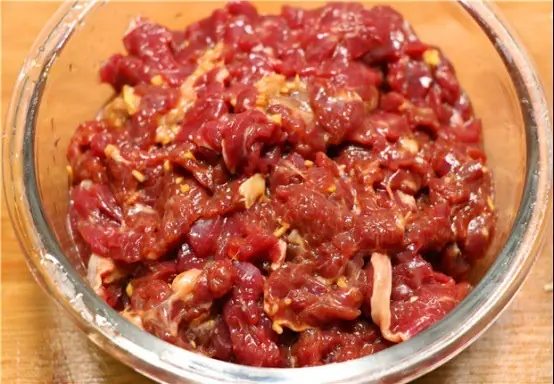
If your beef turns out tough, don’t marinate it with salt. Use this ingredient instead to make it tender and richly flavored
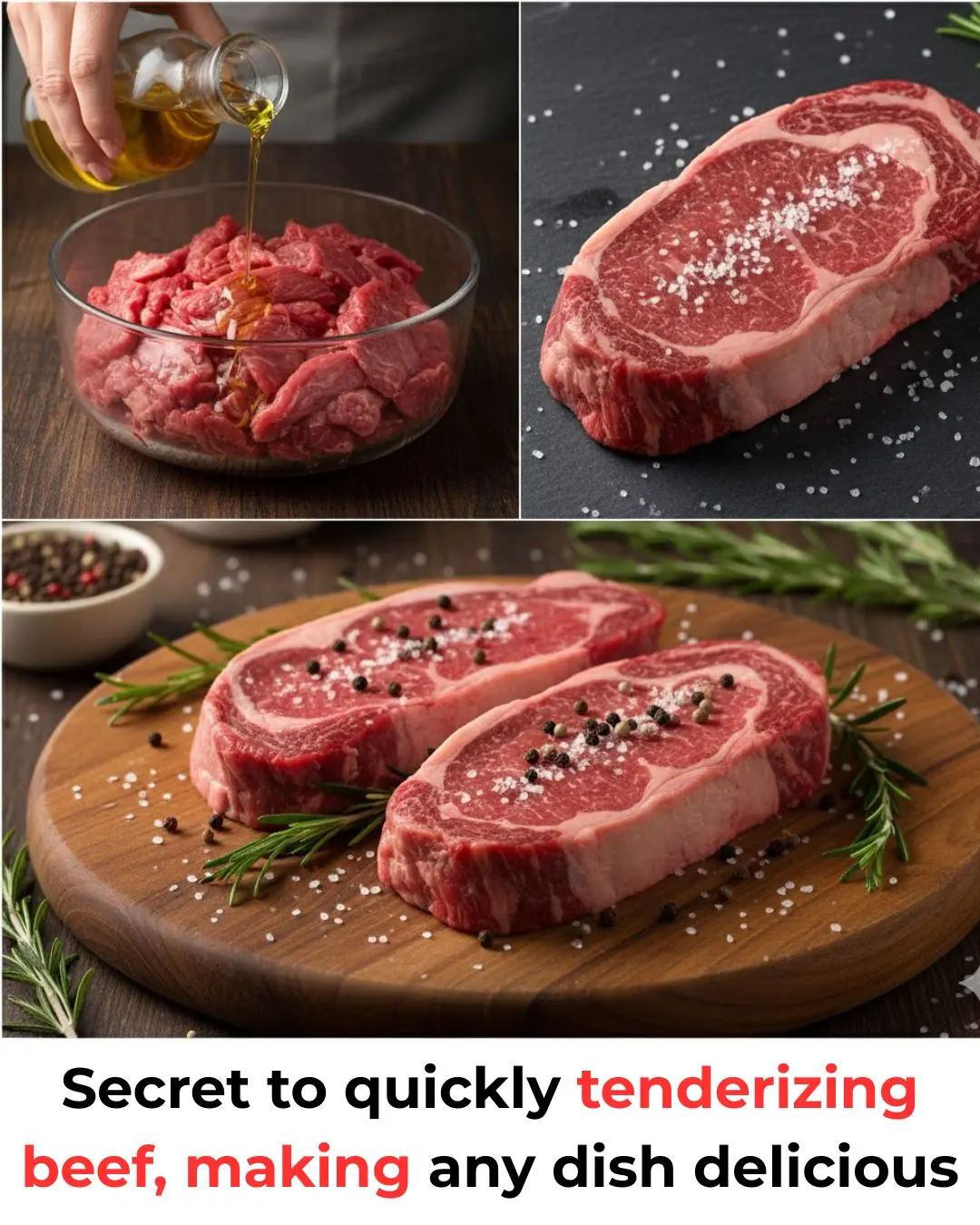
Secret to quickly tenderizing beef, making any dish delicious
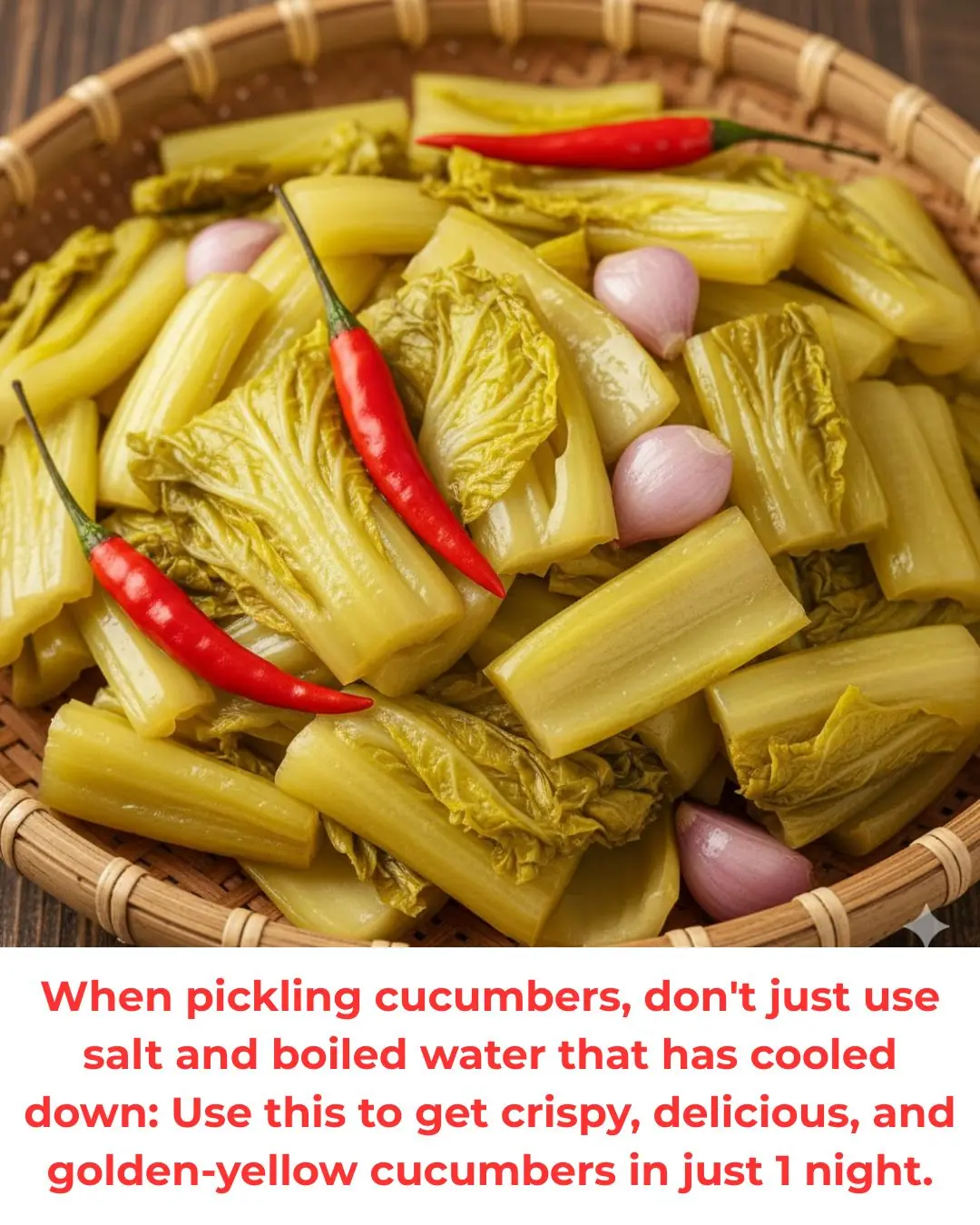
When pickling cucumbers, don't just use salt and boiled water that has cooled down: Use this to get crispy, delicious, and golden-yellow cucumbers in just 1 night.
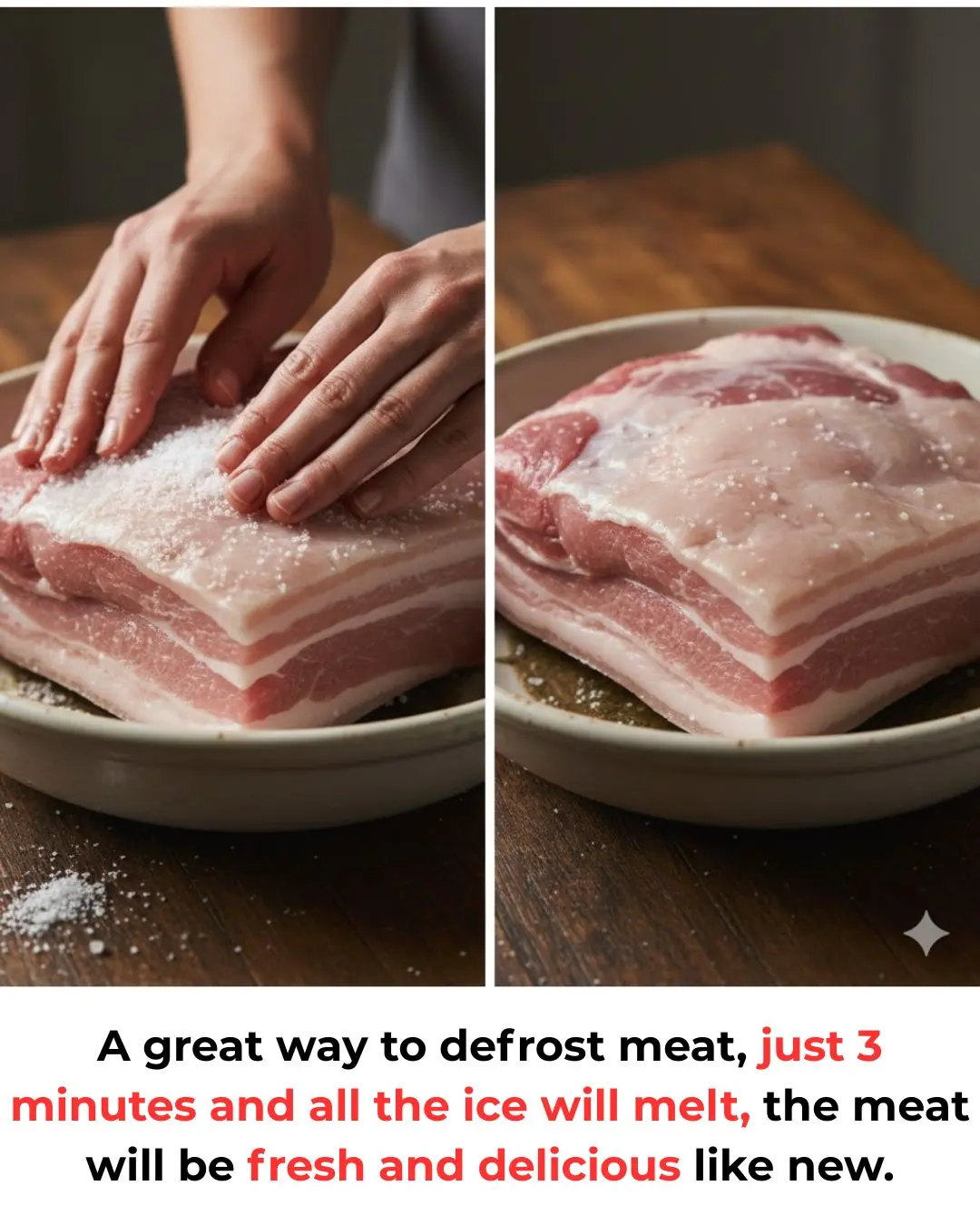
A great way to defrost meat, just 3 minutes and all the ice will melt, the meat will be fresh and delicious like new.
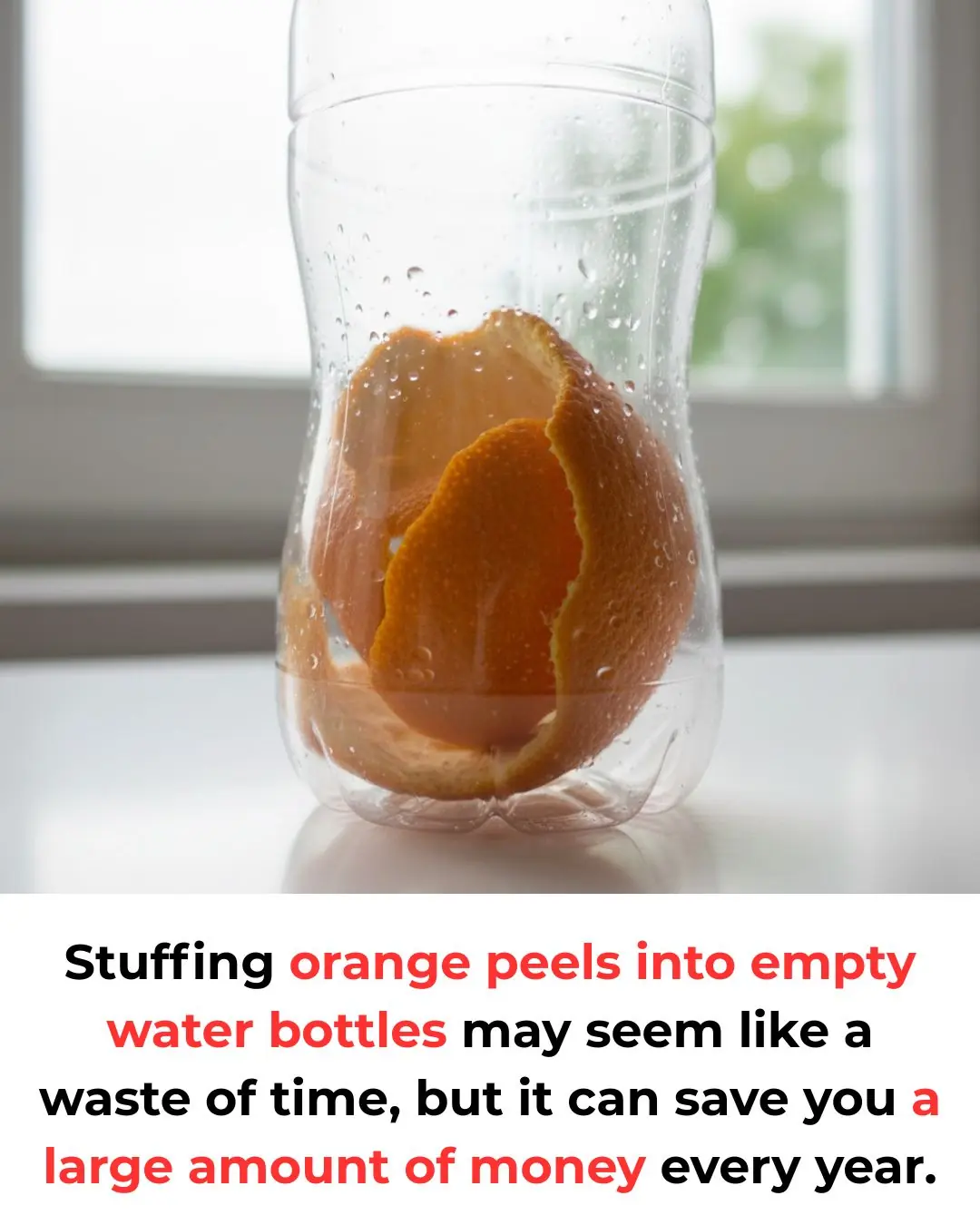
Stuffing orange peels into empty water bottles may seem like a waste of time, but it can save you a large amount of money every year.
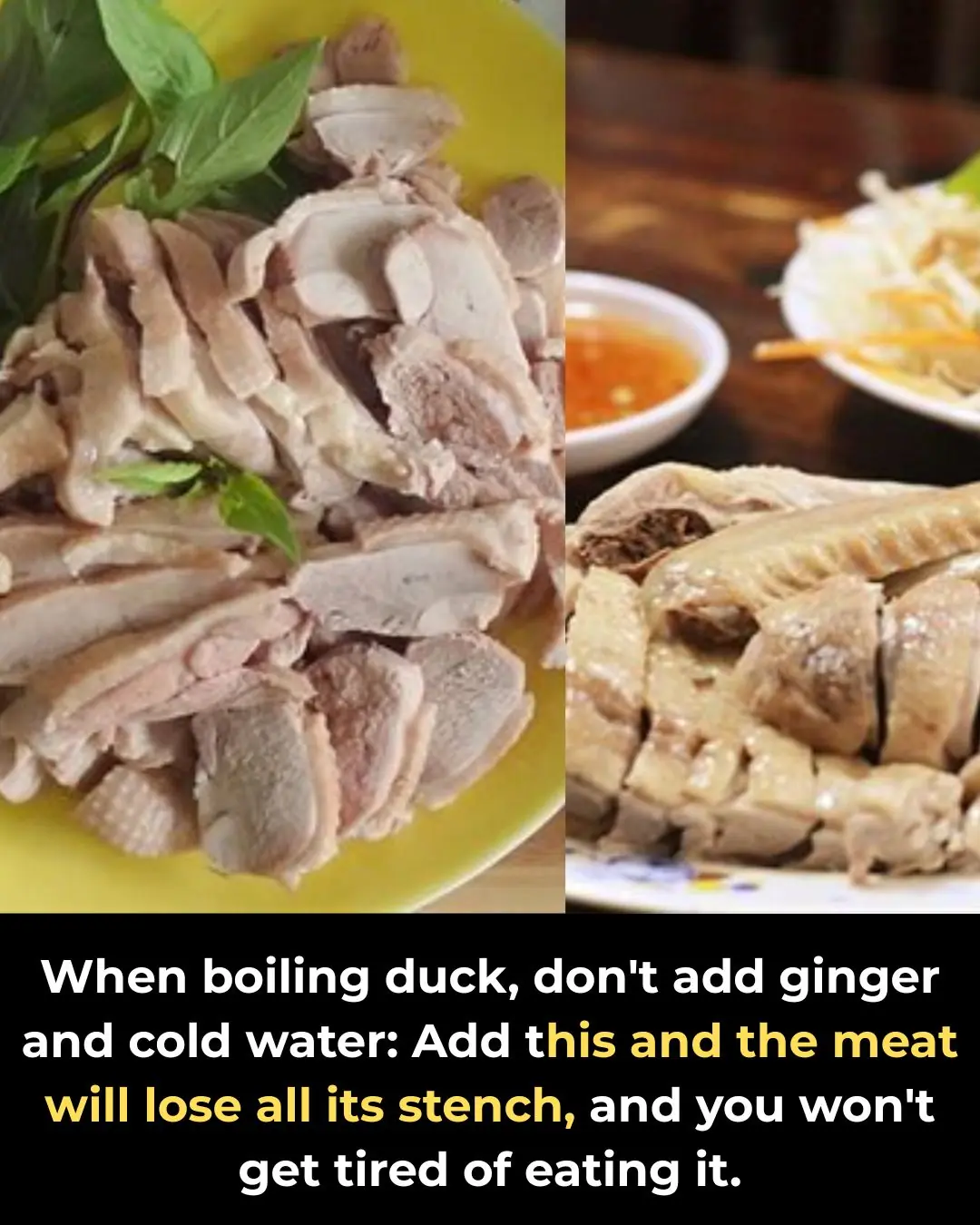
When boiling duck, don't add ginger and cold water: Add this and the meat will lose all its stench, and you won't get tired of eating it.
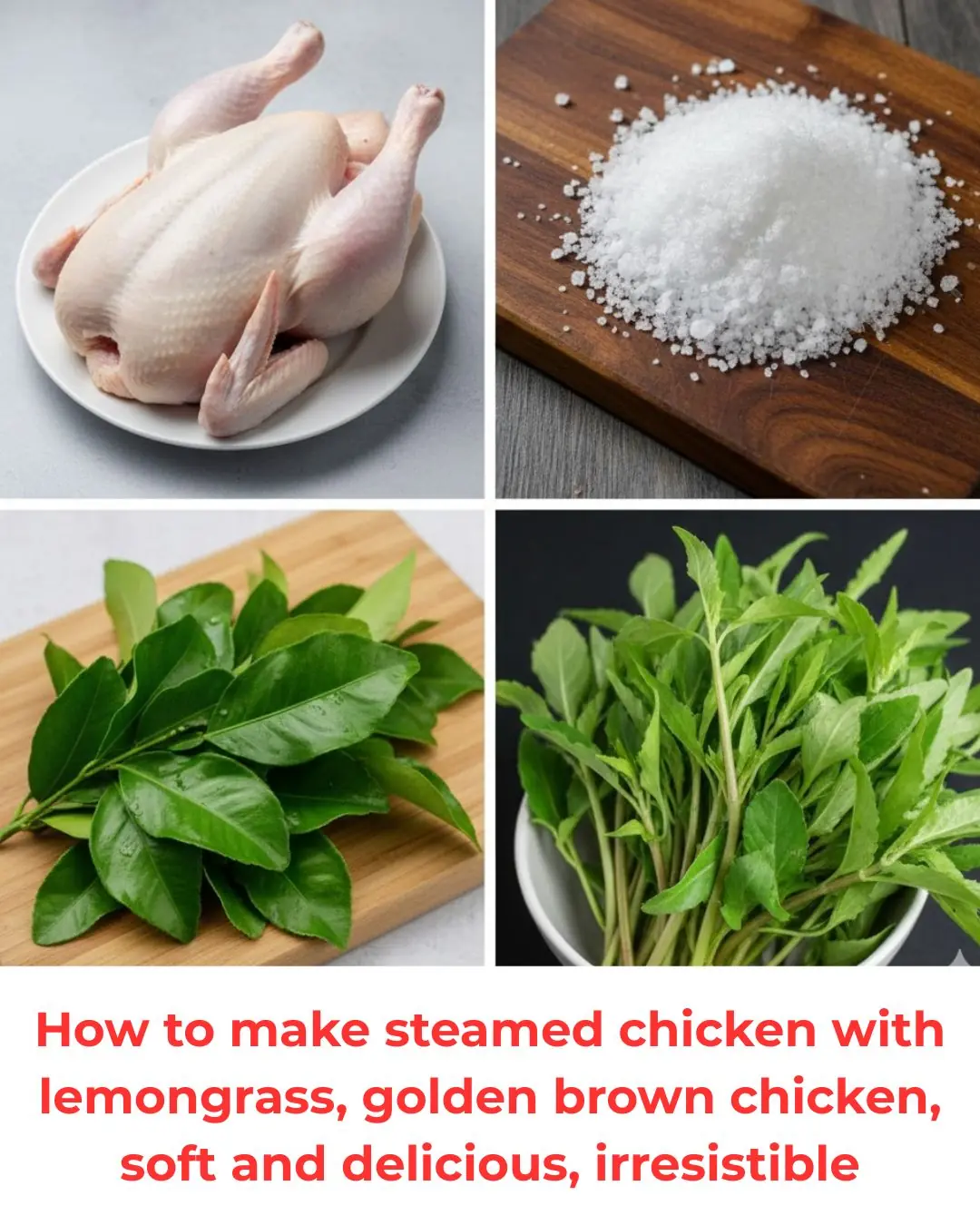
How to make steamed chicken with lemongrass, golden brown chicken, soft and delicious, irresistible
News Post
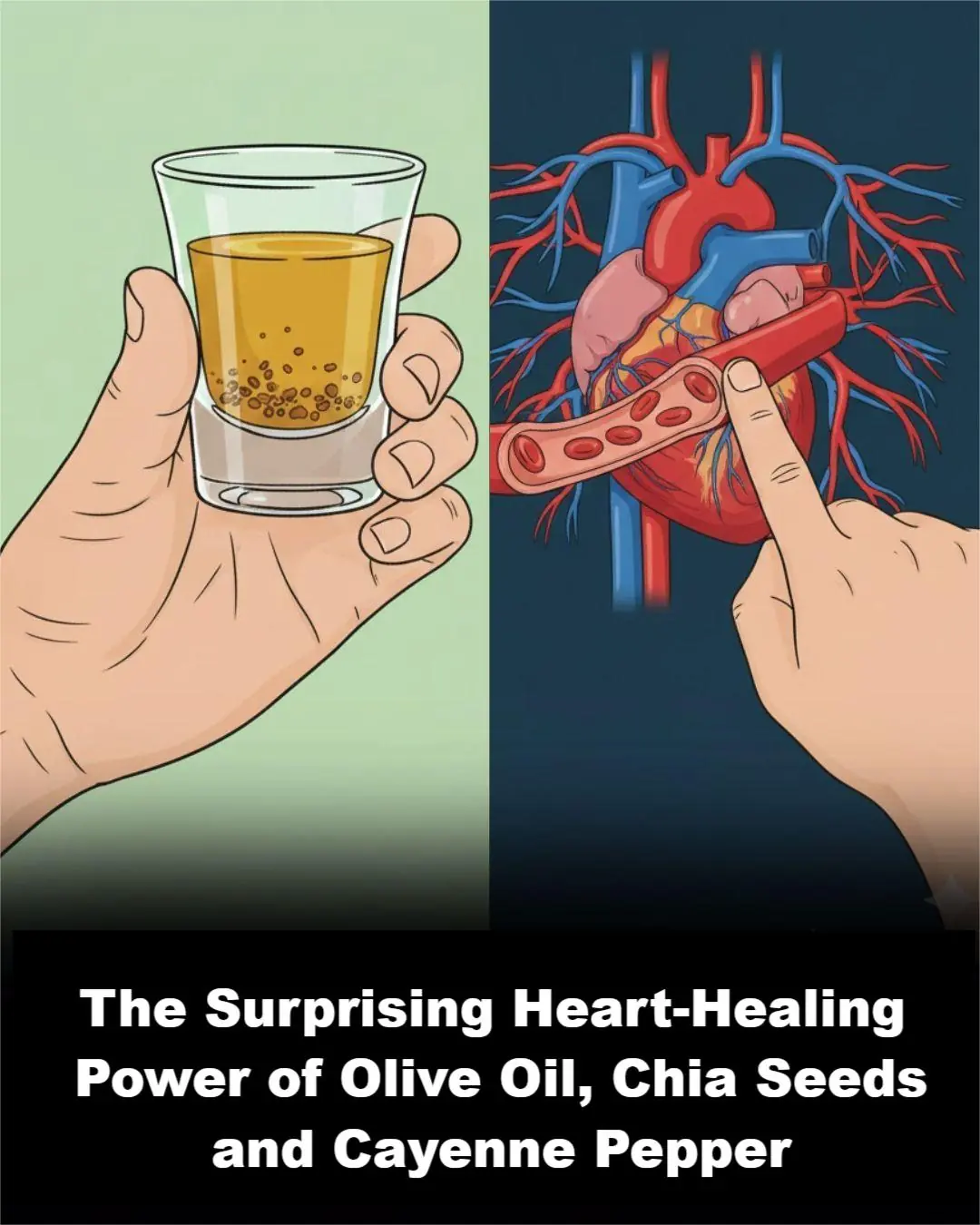
The Surprising Heart-Healing Power of Olive Oil, Chia Seeds, and Cayenne Pepper
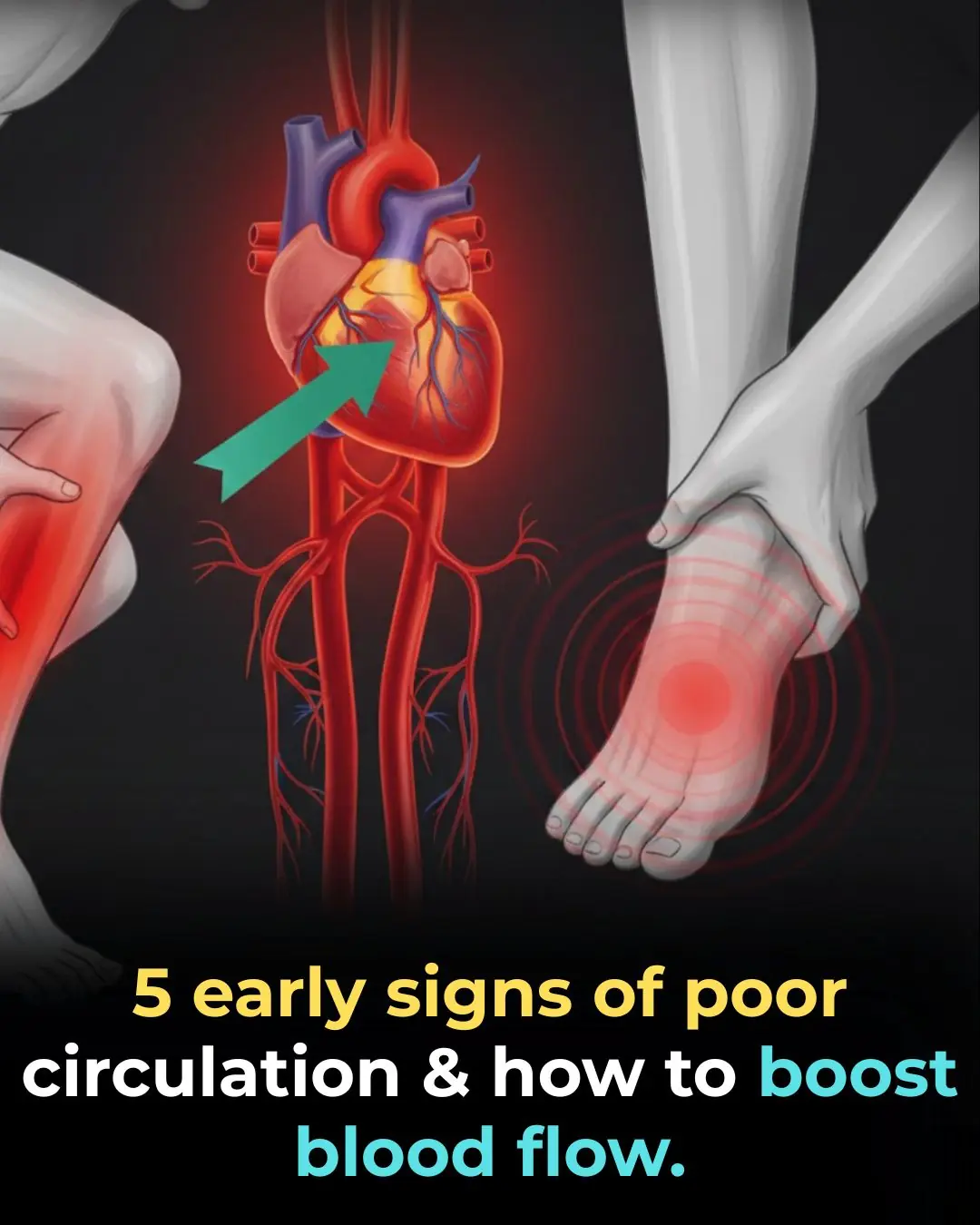
5 early signs of poor circulation & how to boost blood flow

How to Use Garlic to Get Rid of Pests: Mice, Flies, Lice, Cockroaches, Lizards, Mosquitoes, and Kitchen Cockroaches
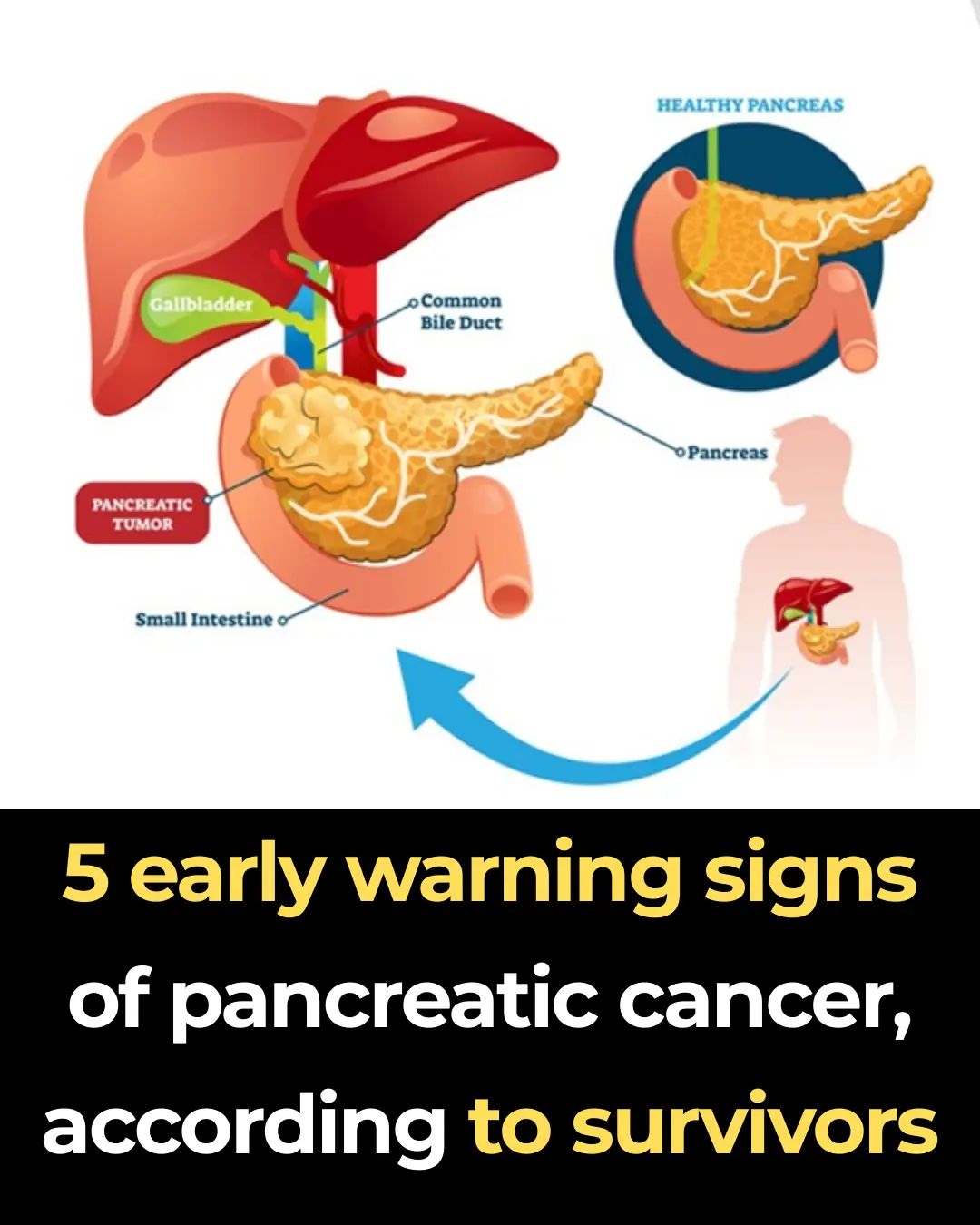
5 early warning signs of pancreatic cancer, according to survivors

Drink this to STOP joint pain naturally

Top 6 Neuropathy Remedies (Peripheral Neuropathy Home Remedies)

10 daily habits that are silently destroying your kidneys
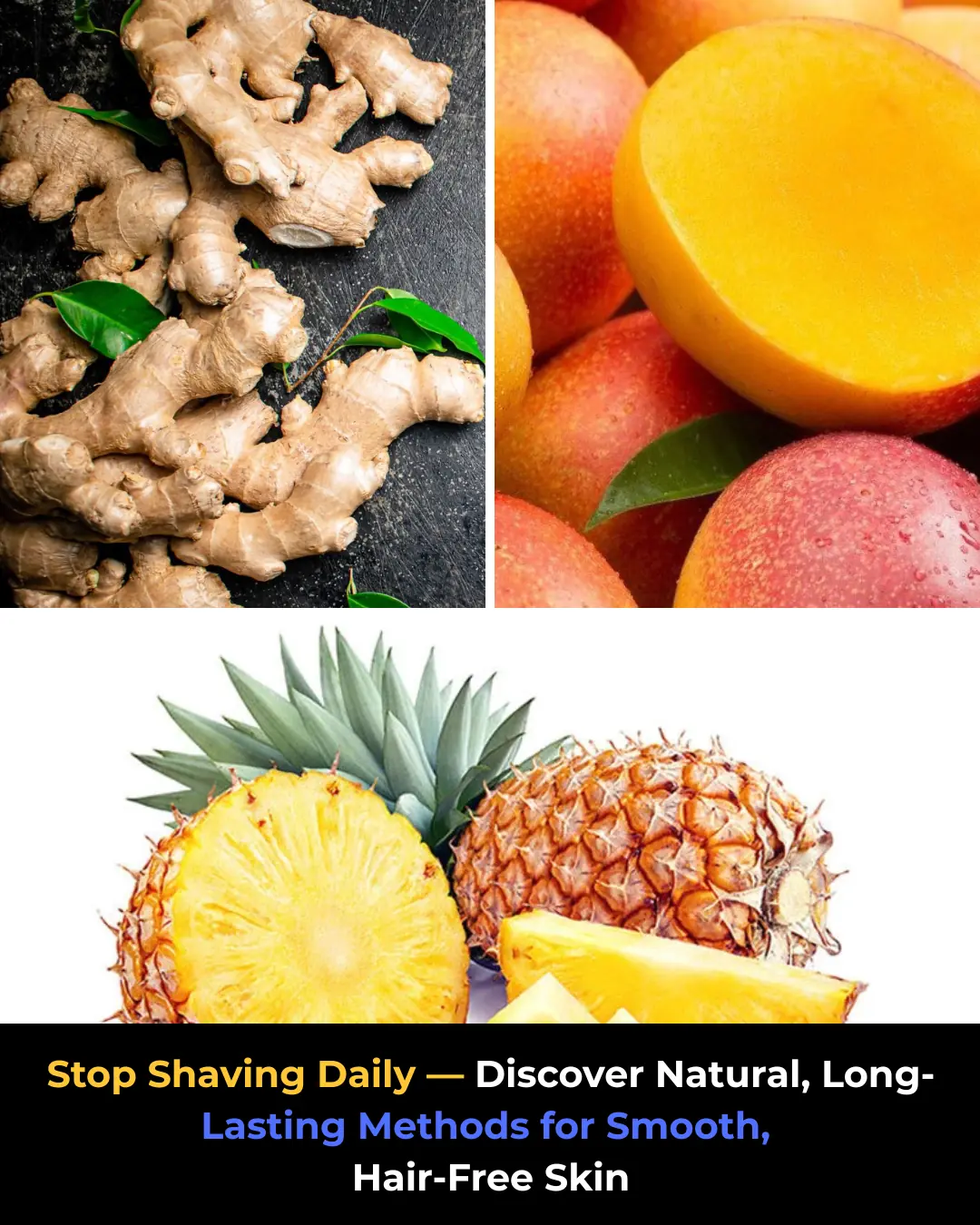
Pineapple Mango Ginger Lemon Juice: Benefits, Nutrition & How to Make It

Saffron boosts mood and libido naturally
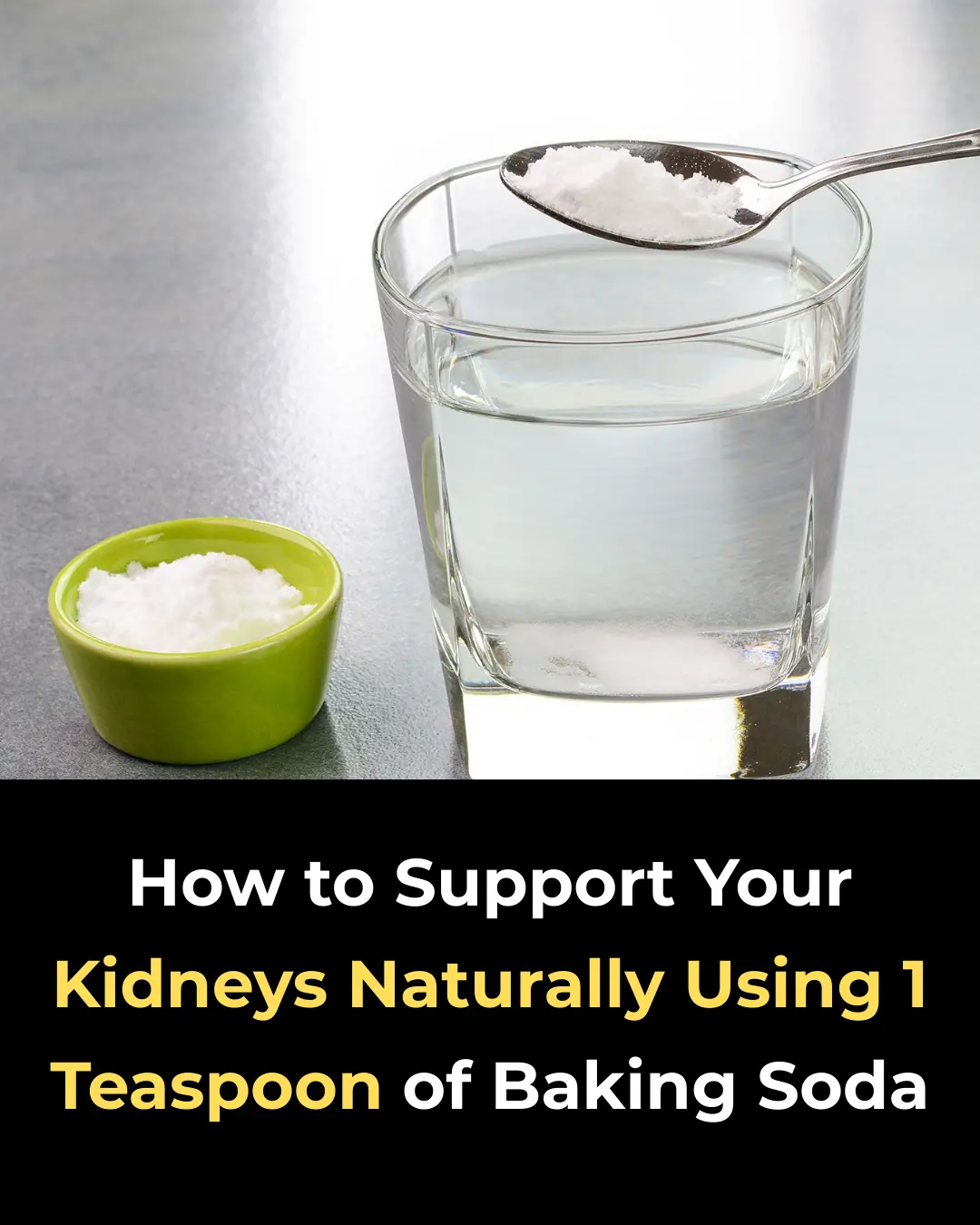
How to Support Your Kidneys Naturally Using 1 Teaspoon of Baking Soda
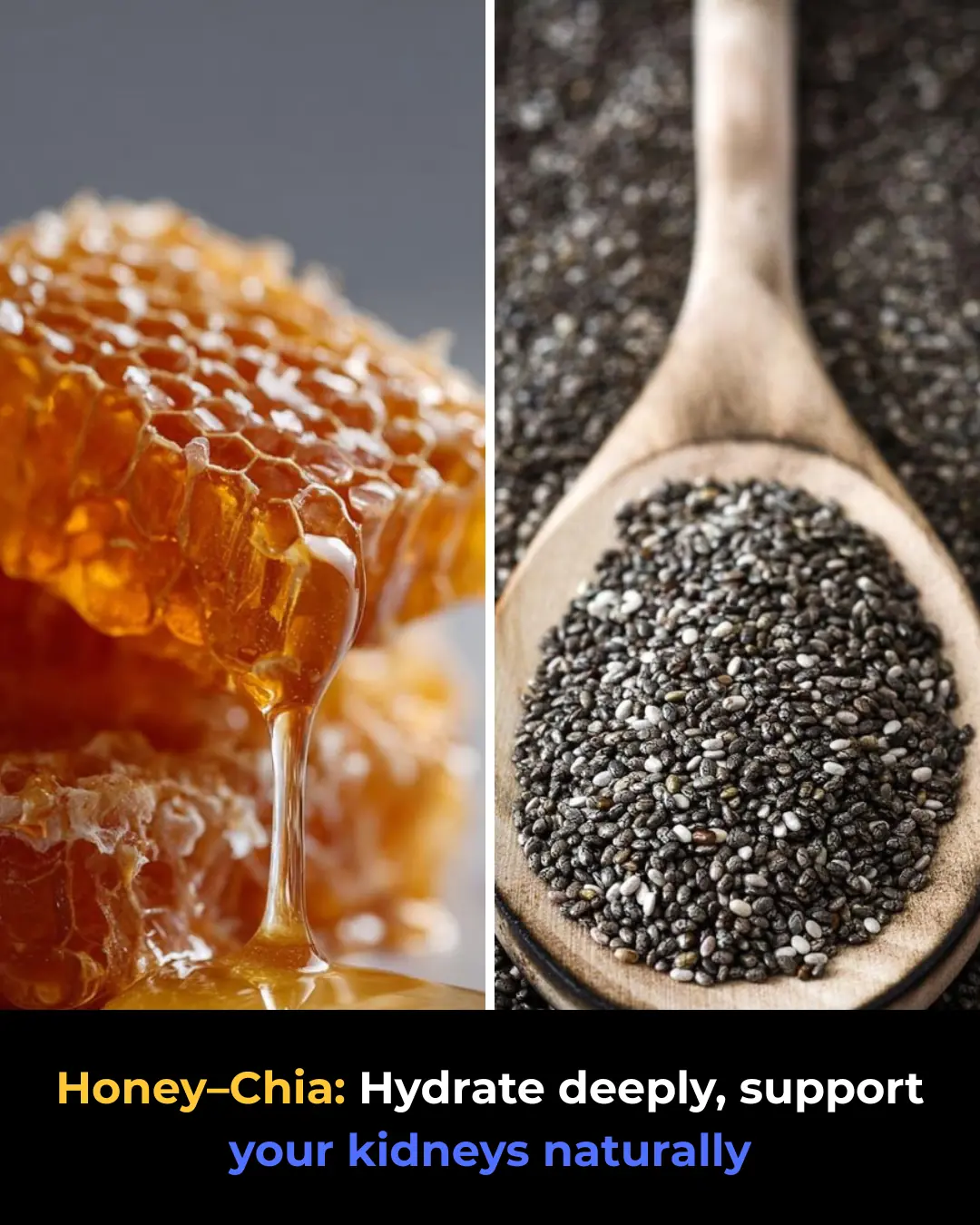
Can a Honey–Chia Drink Support Kidney Health? Benefits, Recipe & Daily Tips

Euphorbia Hirta (Asthma-Plant): Traditional Uses, Applications & Emerging Insights
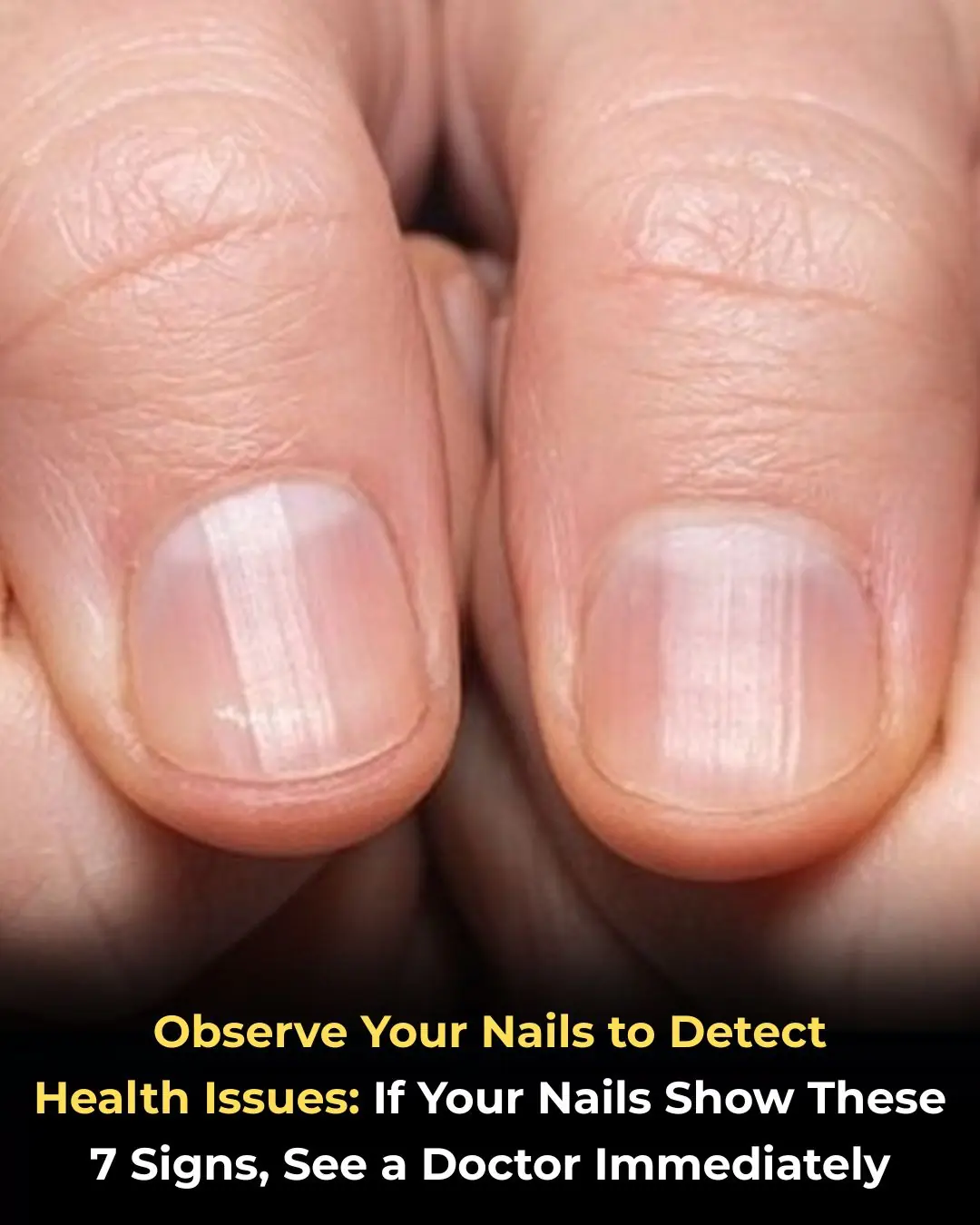
Nails: What Do They Reveal About Your Health
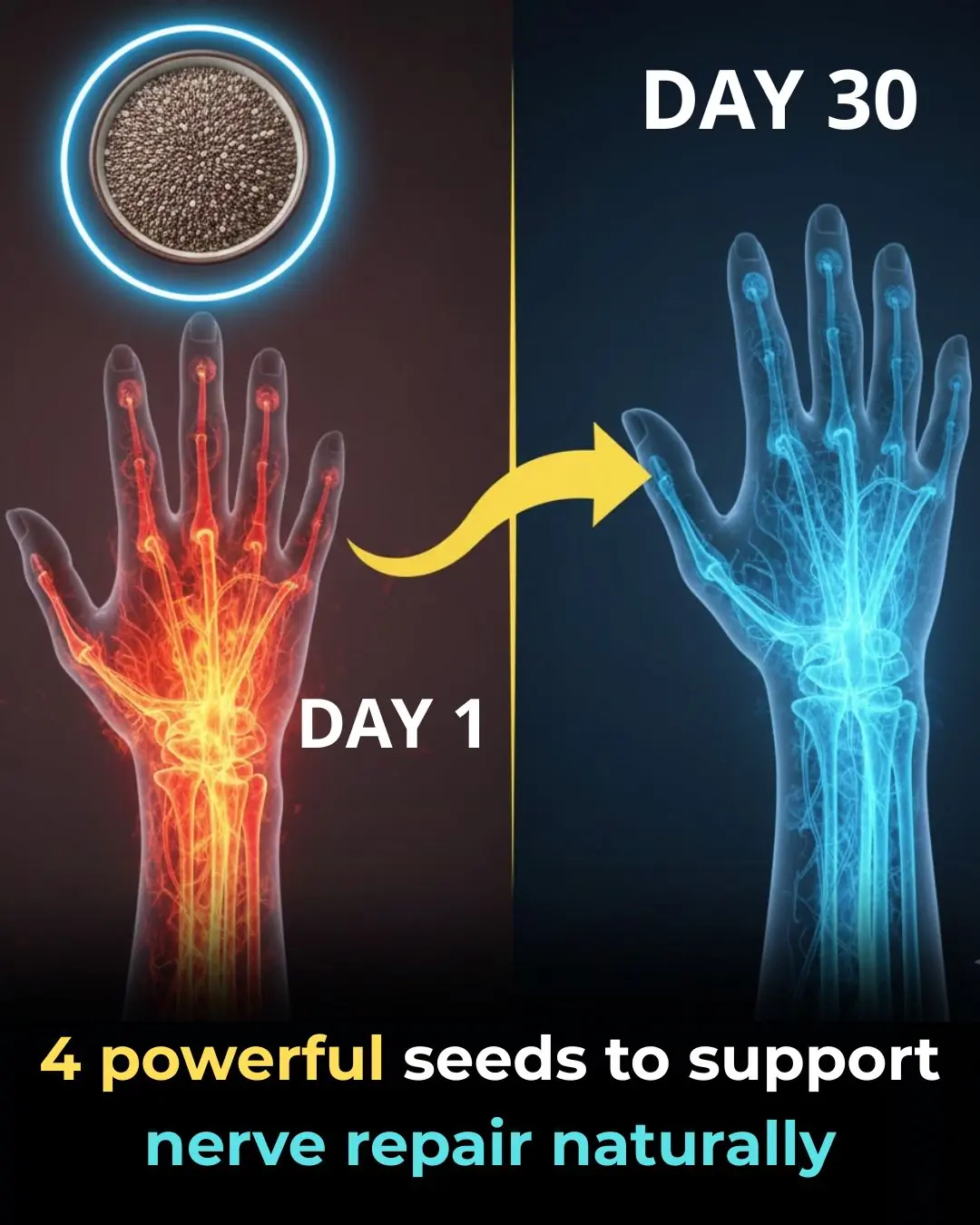
The surprising power of 4 seeds to repair your nerves naturally
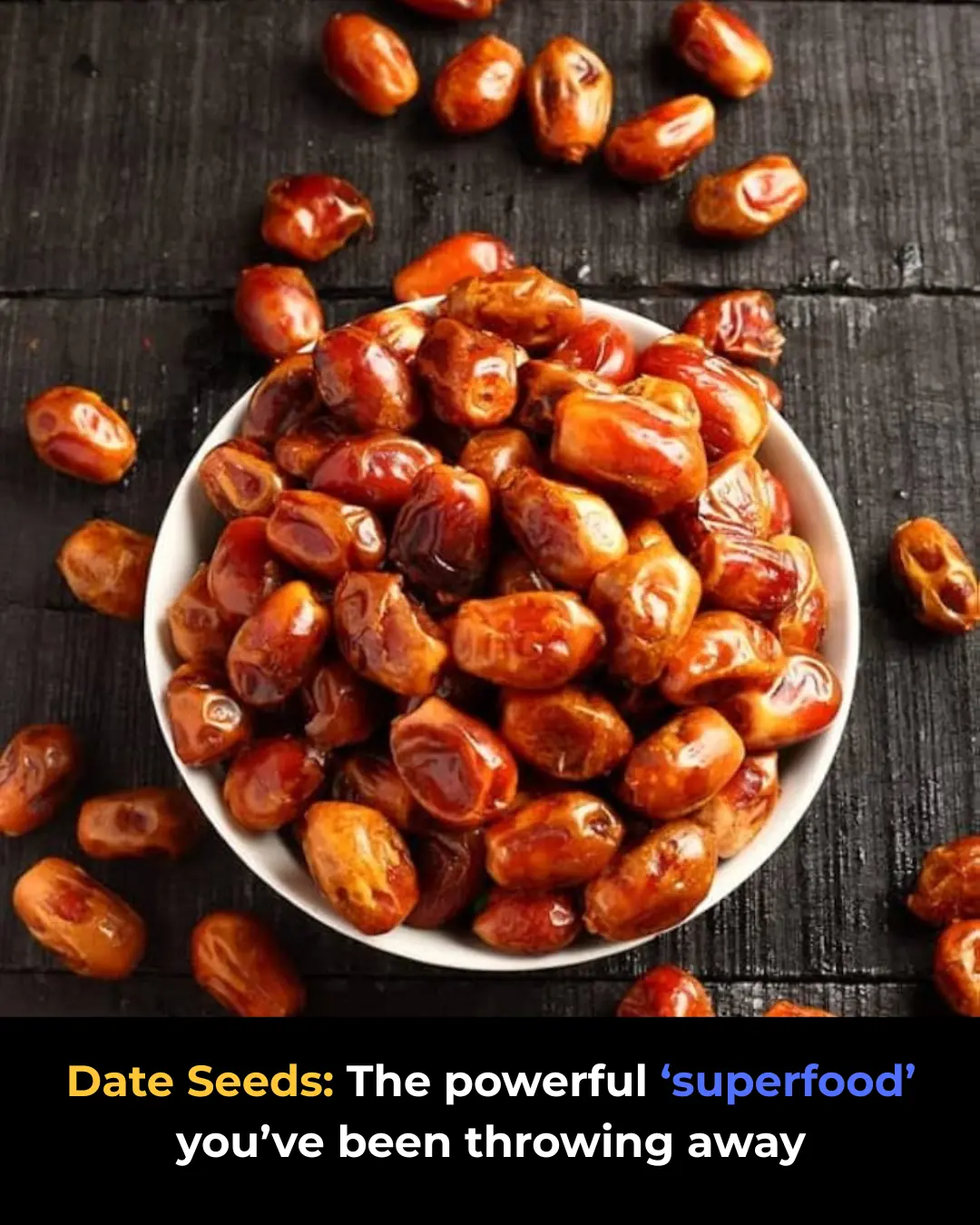
Don’t Throw Away Date Seeds – Here’s Why They’re So Powerful
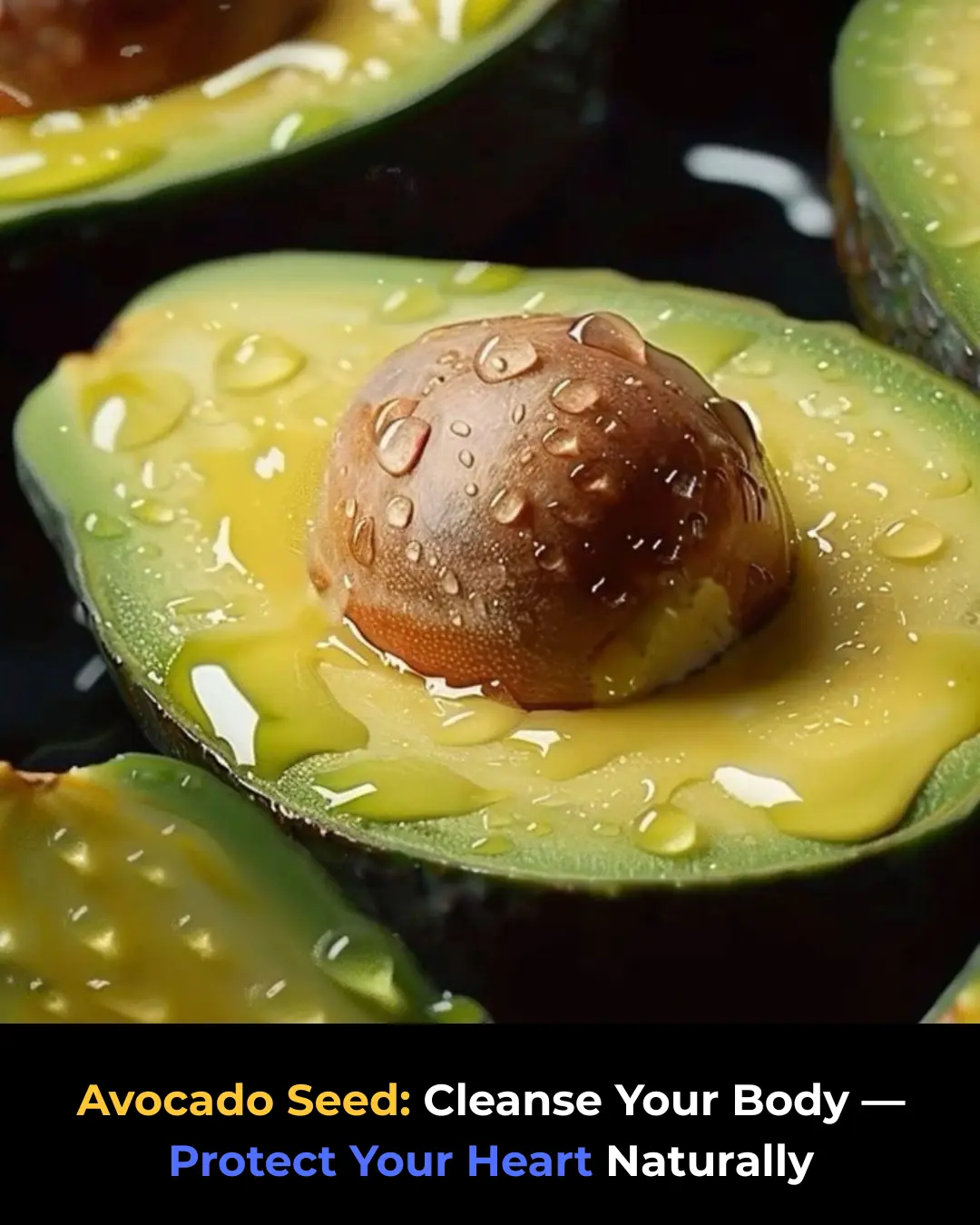
Avocado Seed: Cleanse Your Body and Strengthen Your Heart Naturally
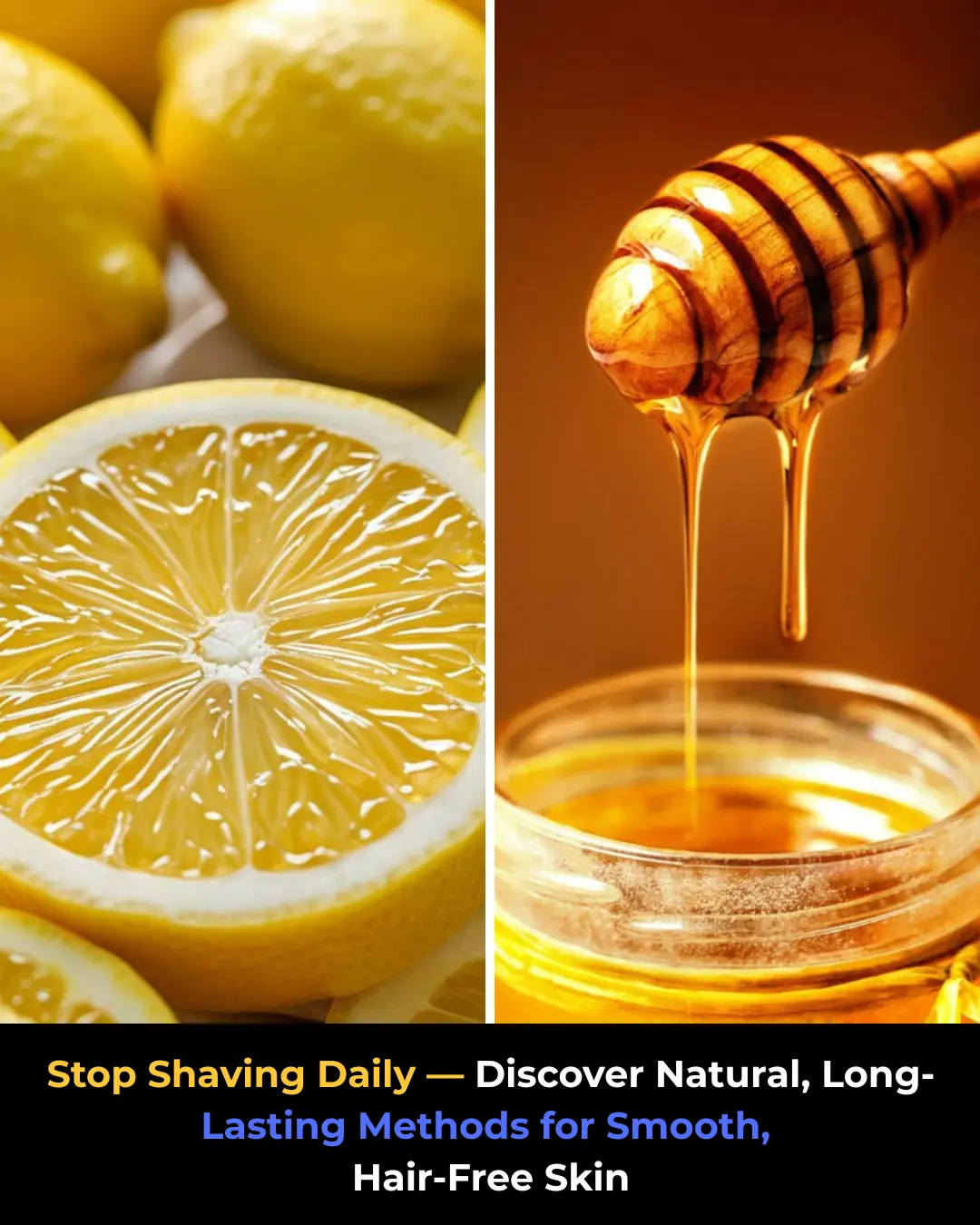
Stop Shaving! Discover Natural & Long-Lasting Hair Removal for Face & Body

Why wood—not diamonds—is the universe’s rarest treasure

A Nearby Earth-Sized World Raising New Hopes for Habitability
